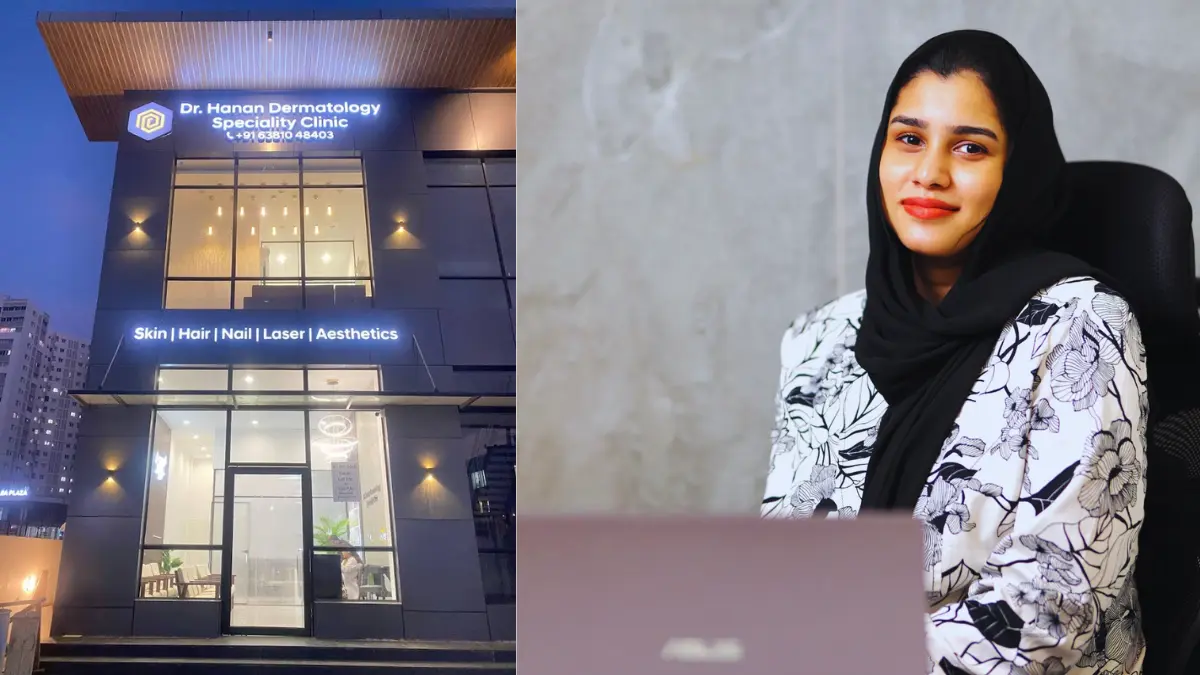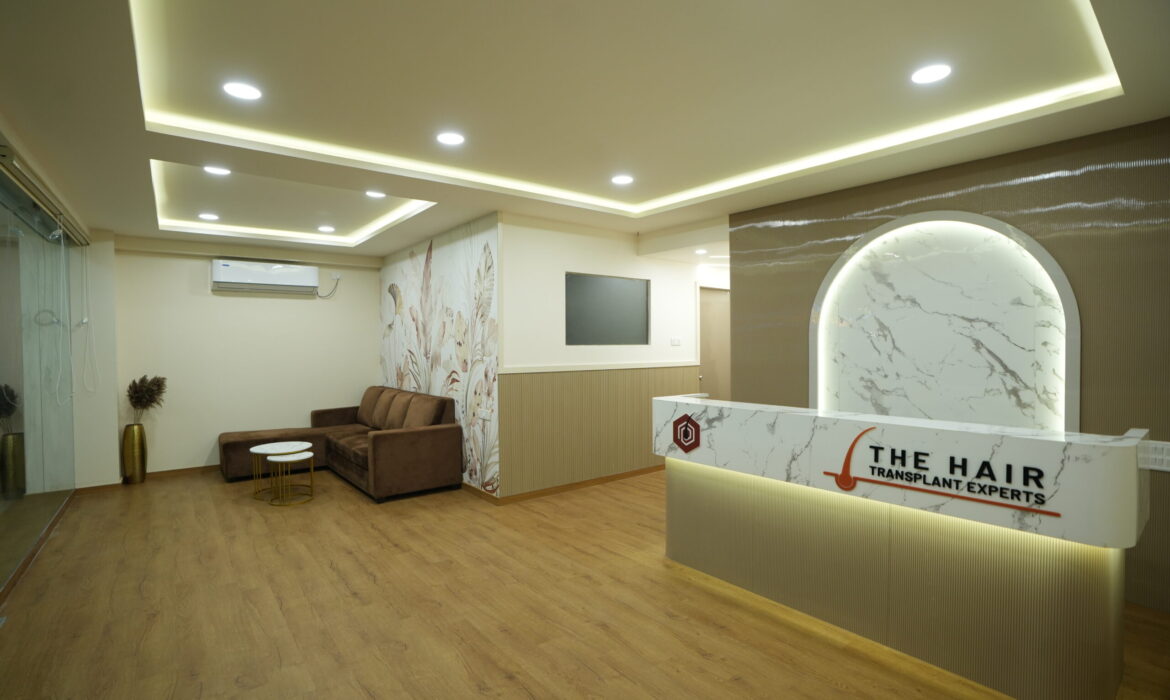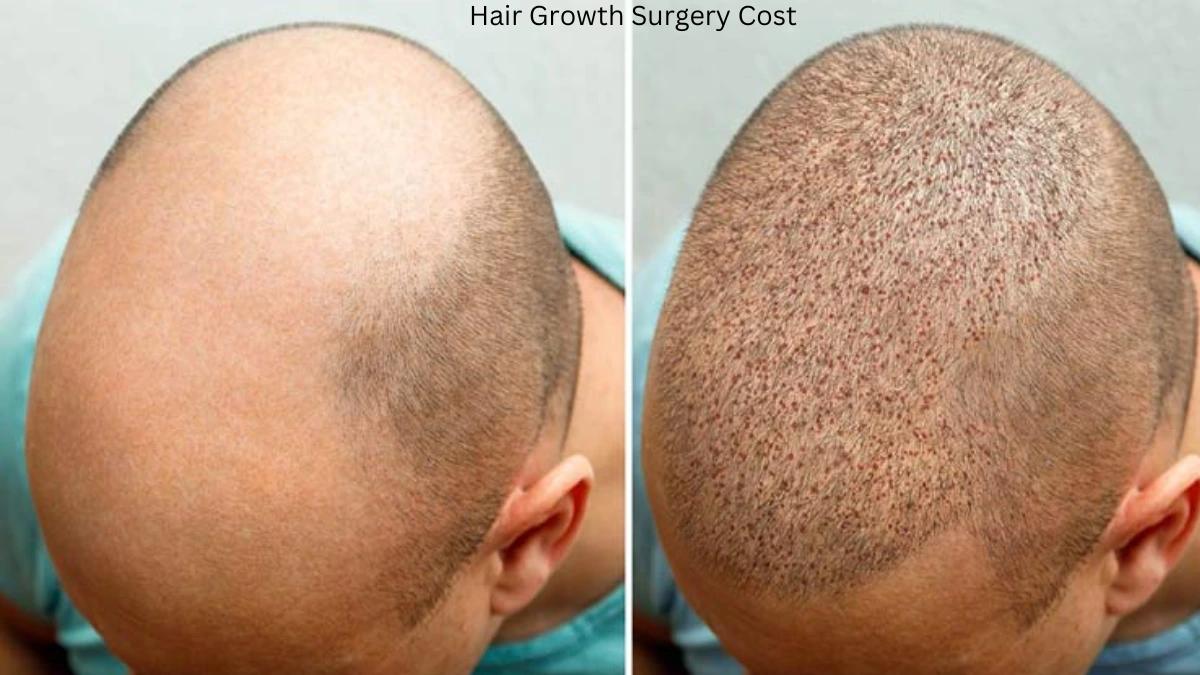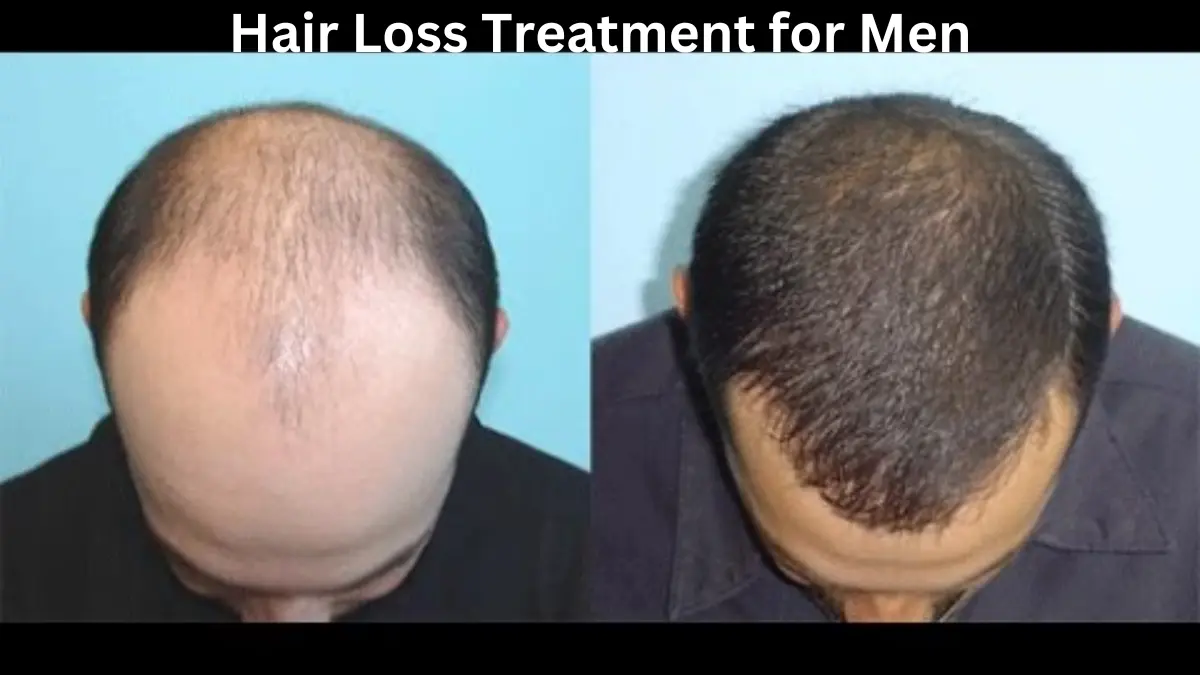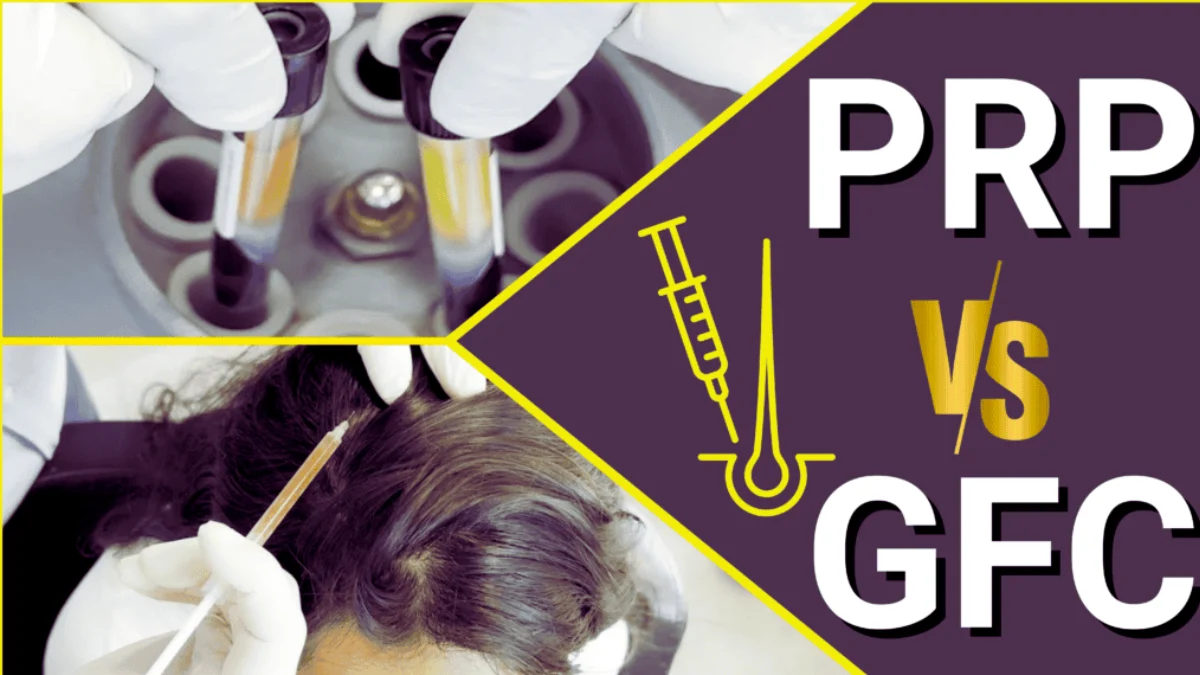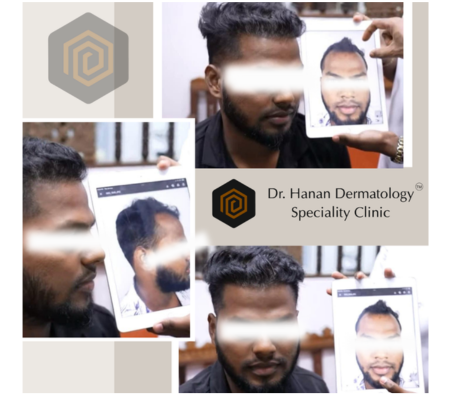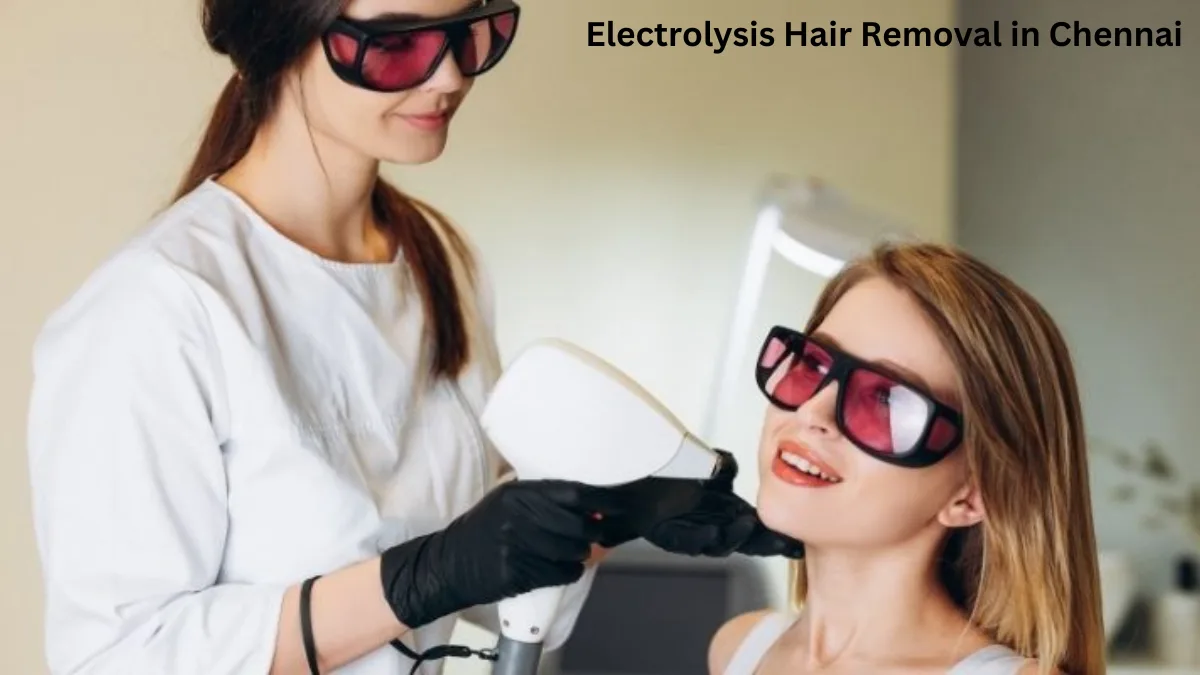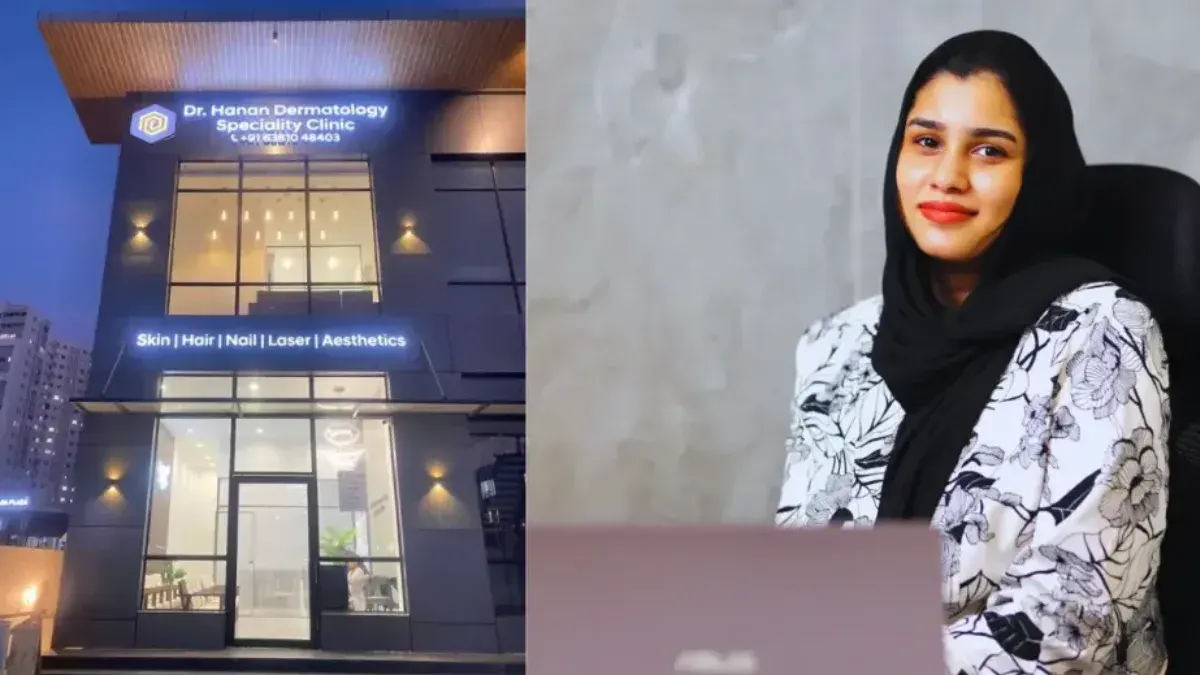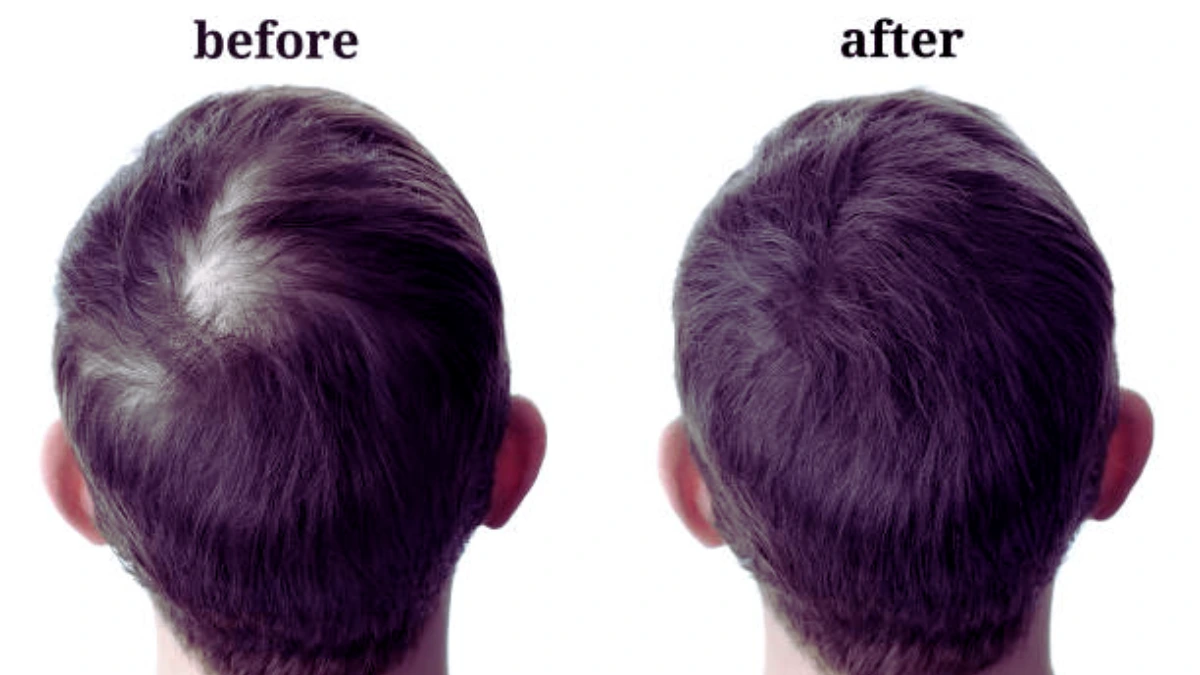Expert Tips to Choose the Best Hair Transplant Clinic – Hair Transplant Reviews in Chennai
Best Hair Doctor in Chennai: Your Ultimate Guide to Expert Hair Care and Treatment
Choosing the right hair doctor is essential for anyone dealing with hair-related issues. Whether you’re facing hair loss, thinning, scalp conditions, or other concerns, the expertise of a skilled hair doctor can make all the difference. In this guide, we’ll explore what a hair doctor does, why you should choose the best in Chennai, the qualities to look for, and more, to help you make an informed decision for your hair health.
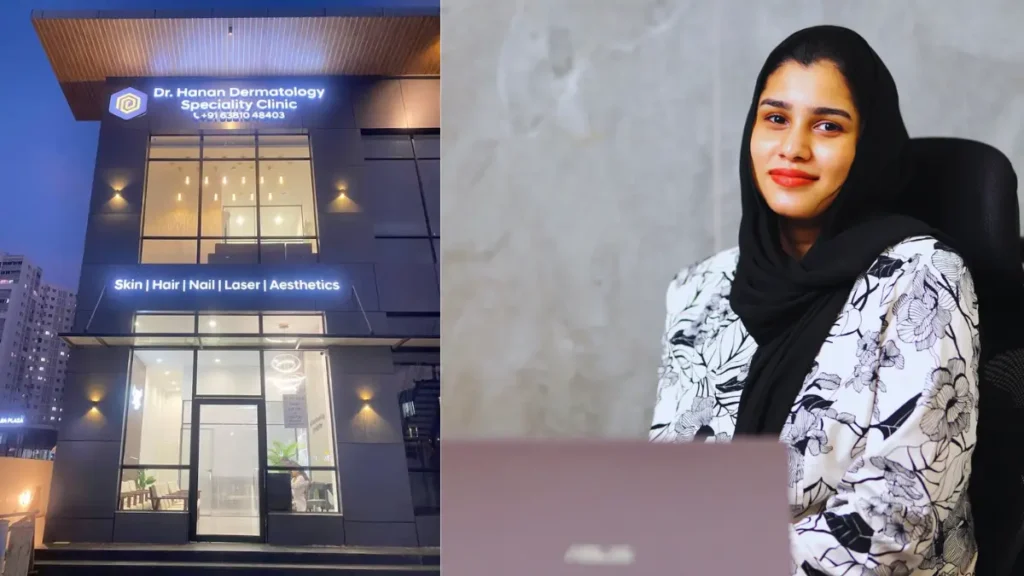
Book Your Consultation Today
Visit Dr. Hanan Dermatology Specialty Clinic in Padur, OMR, Chennai. Schedule your consultation today and start your journey to fuller, healthier hair.
For more information and to book your appointment, visit our clinic or call us at the clinic’s contact details.
Dr. Hanan Dermatology Speciality Clinic
- Location: A Block, Gem Bhoomi & Buildings, OMR, Padur, Chennai, Tamil Nadu 603103
- Timings:
- Mon – Tue, Thu – Fri: 02:00 PM to 07:00 PM
- Sat – Sun: 10:00 AM to 07:00 PM
- Consultation Fee: ₹600
- Get Directions on map
| Doctor Name | Specialty | Experience | Consultation Fee | Clinic |
|---|---|---|---|---|
| Dr. Col Rajagopal A | Dermatologist | 62 years | ₹1000 | Apollo Children’s Hospitals, Thousand Lights |
| Dr. Ramanan | Dermatologist | 51 years | ₹500 | Apollo Spectra Hospital, Alwarpet |
| Dr. G. Manokaran | Plastic Surgeon | 46 years | ₹2000 | Apollo Spectra Hospital, Alwarpet |
| Dr. R Krishnamoorthy | Plastic Surgeon | 34 years | ₹800 | SIMS Hospital, Vadapalani |
| Dr. Muralidhar Rajagopal | Dermatologist | 34 years | ₹1000 | Apollo Hospitals, Greams Road |
| Dr. V.Purushothaman | Plastic Surgeon | 34 years | ₹500 | MGM Healthcare, Adyar |
| Dr. Ganga Ravikumar | Cosmetologist | 34 years | ₹800 | Dermis Skin & Hair Clinic, Adyar |
| Dr. A.M Jayaraman | Dermatologist | 48 years | ₹1000 | Apollo Cancer Centres, Teynampet |
| Dr. K.Shyamnath Krishna Pandian | Plastic Surgeon | 26 years | ₹800 | SIMS Hospital, Vadapalani |
| Dr. D. Jayashree | Ayurveda | 40 years | ₹1000 | Shree Ayurvedic Multispeciality Hospital, West Mambalam |
What Does a Hair Doctor Do?
A hair doctor, also known as a dermatologist or trichologist, specializes in diagnosing and treating hair and scalp conditions. These experts have the skills and knowledge to address a wide range of hair problems, such as:
- Hair loss (Alopecia): Both male and female pattern baldness, as well as other forms of hair loss.
- Scalp issues: Conditions like dandruff, fungal infections, psoriasis, and more.
- Hair thinning: Treatment for those experiencing thinning or weak hair strands.
- Hair restoration: Offering surgical and non-surgical treatments for hair regrowth.
Hair doctors provide personalized treatment plans tailored to the specific needs of each patient, ensuring effective results.
Why Choose the Best Hair Doctor in Chennai?
Chennai is home to some of the best hair specialists in India, but choosing the right one is key to achieving effective treatment. Here’s why:
- Expert Care: A skilled hair doctor brings years of experience in diagnosing and treating various hair-related conditions.
- Advanced Treatments: The best hair doctors in Chennai use the latest techniques and technologies to provide you with cutting-edge treatments such as hair transplants, PRP therapy, and more.
- Proven Results: Trusted hair doctors have a proven track record of successful patient outcomes, giving you the confidence to trust their expertise.
Top Qualities to Look for in a Hair Doctor
When searching for the best hair doctor in Chennai, consider these important qualities:
- Experience and Specialization: Look for a doctor with extensive experience in treating hair and scalp issues. A specialist in dermatology or trichology will offer tailored care.
- Certifications and Education: Ensure the doctor is qualified with certifications and a strong educational background in dermatology or trichology.
- Modern Treatment Options: The best hair doctors stay updated with the latest advancements in hair treatment technologies and use proven methods.
- Positive Patient Reviews: Check for testimonials and reviews from previous patients, as they provide valuable insight into the doctor’s skills and approach.
- Clear Communication: A good hair doctor takes the time to explain the treatment options, answer questions, and create a personalized plan for your hair care.
Best Hair Doctors in Chennai
Some of the top-rated hair specialists in Chennai include:
- Dr. Hanan Amin (Dr. Hanan Dermatology Speciality Clinic): With years of experience in dermatology and hair care, Dr. Hanan is a trusted name for hair loss treatments, including hair transplants, PRP therapy, and more.
- Dr. Tejaswi Cherukuri (Apollo Speciality Hospitals): Dr. Tejaswi offers a wide range of hair treatments and has a reputation for delivering results in hair regrowth and restoration.
- Dr. Shankari Jeyakumar (H4U Clinic): Known for her expertise in hair loss and scalp conditions, Dr. Shankari provides personalized consultations and advanced treatments.
Common Hair Problems Treated by Experts
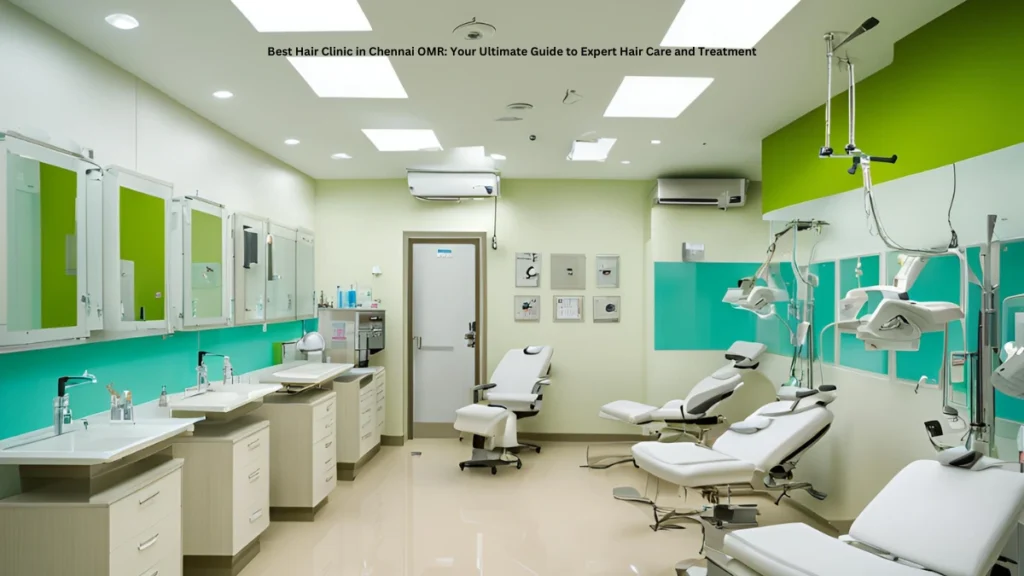
Hair doctors in Chennai treat a variety of conditions, including:
- Hair Loss (Alopecia): A common concern for both men and women, often caused by genetics, stress, hormonal imbalances, or nutritional deficiencies.
- Scalp Conditions: Issues such as dandruff, fungal infections, scalp psoriasis, and seborrheic dermatitis.
- Hair Thinning and Balding: Thinning hair or bald patches caused by a range of factors.
- Postpartum Hair Loss: Women may experience hair loss after pregnancy due to hormonal changes.
- Stress-Induced Hair Loss: Hair thinning caused by physical or emotional stress.
Read more: Best Hair Clinic in Chennai OMR Your Ultimate Guide to Expert Hair Care and Treatment
Treatment Options Offered by Top Hair Doctors
Leading hair doctors in Chennai offer a wide range of effective treatments, including:
- Hair Transplants: Techniques like Follicular Unit Extraction (FUE) and Follicular Unit Transplantation (FUT) are highly effective for restoring hair in bald areas.
- Platelet-Rich Plasma (PRP) Therapy: A non-surgical treatment that uses the patient’s own platelets to stimulate hair growth and improve hair health.
- Medications: Drugs such as minoxidil and finasteride can help regrow hair or slow down hair loss.
- Laser Therapy: Low-level laser therapy (LLLT) is a non-invasive treatment used to improve hair thickness and density.
How to Choose the Right Hair Doctor in Chennai
Choosing the best hair doctor requires some research. Here’s how to go about it:
- Look for Expertise: Focus on doctors who specialize in hair restoration and scalp conditions.
- Read Reviews: Online reviews and patient testimonials can provide a glimpse into the doctor’s reputation and success rate.
- Check Qualifications: Ensure the doctor has the appropriate qualifications and certifications in dermatology or trichology.
- Book a Consultation: Meeting the doctor for an initial consultation will give you the chance to ask questions and determine if their approach aligns with your expectations.
Cost of Hair Treatment in Chennai
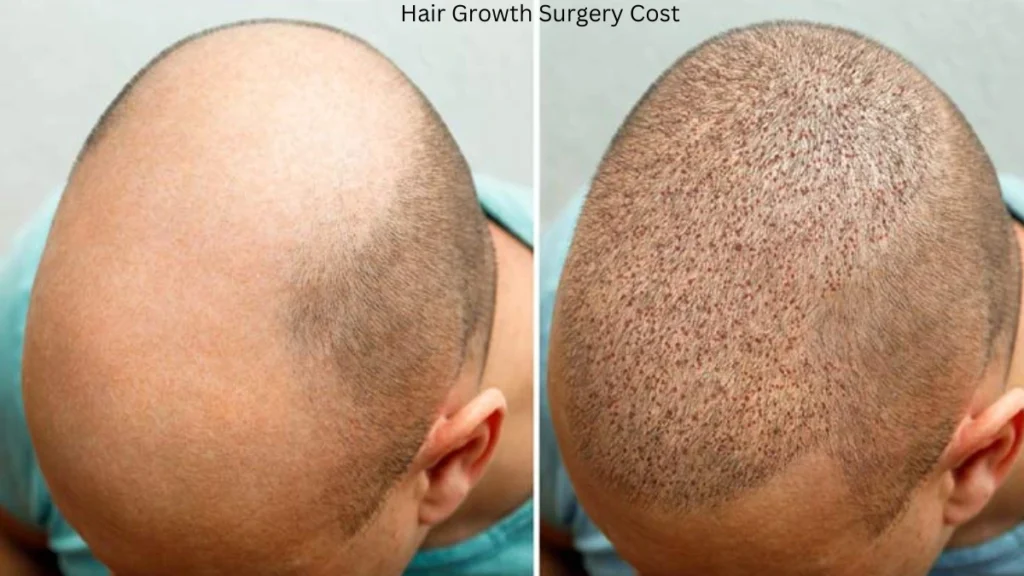
The cost of hair treatments can vary based on the type of treatment and the doctor’s expertise. Here’s an overview:
- Hair Transplant: ₹50,000 to ₹1,50,000 depending on the number of grafts and the technique used.
- PRP Therapy: ₹10,000 to ₹25,000 per session.
- Medications: Costs can range from ₹500 to ₹3,000 per month, depending on the type of treatment.
Factors such as the clinic’s reputation, the doctor’s experience, and the type of treatment required can influence the final price.
Read more: Hair Growth Surgery Cost
Conclusion
Finding the best hair doctor in Chennai is crucial to addressing hair and scalp concerns effectively. By considering factors like experience, qualifications, and patient reviews, you can make an informed choice. Whether you’re dealing with hair loss, scalp conditions, or seeking a hair transplant, the right specialist can help you restore your hair and confidence.
FAQs
1. How do I know if I need a hair transplant?
- If you’re experiencing significant hair loss or balding areas that don’t respond to other treatments, a hair transplant may be the best option.
2. Are hair treatments safe?
- Yes, treatments like PRP therapy and hair transplants are safe when performed by experienced specialists.
3. How long will it take to see results from a hair transplant?
- Hair transplant results usually begin to show within 3 to 6 months, with full results appearing in about 12 to 18 months.
By following these tips, you can find the best hair doctor in Chennai to address your unique hair care needs and achieve the best possible results.
Hair Transplant Reviews in Chennai – Dr. Hanan Dermatology Speciality Clinic

Hair Transplant Reviews in Chennai: Hair loss can deeply affect confidence, appearance, and self-esteem. With Chennai becoming a major hub for advanced hair restoration, many people now search online for hair transplant reviews in Chennai before choosing the right clinic. Genuine patient reviews play a vital role in understanding treatment quality, doctor expertise, safety, and real results.
Among the trusted names in hair restoration, Dr. Hanan Dermatology Speciality Clinic stands out as a leading dermatology and cosmetology clinic in Chennai, known for affordable, safe, and natural-looking hair transplant results.
Why Hair Transplant Reviews Matter
Hair transplant reviews give real insight into:
Patient satisfaction and confidence after treatment
Natural appearance of hairline and density
Pain levels, recovery time, and post-procedure care
Transparency in pricing and consultation
Unlike promotional claims, patient reviews reflect real experiences and help new patients make informed decisions.
About Dr. Hanan Dermatology Speciality Clinic, Chennai
Dr. Hanan Dermatology Speciality Clinic is a trusted skin, hair, and laser treatment center located at Padur, OMR, Chennai. The clinic is well-known for combining medical expertise with advanced technology to deliver safe and effective hair restoration solutions.
Clinic Highlights
Experienced dermatology and hair transplant specialists
Modern infrastructure with strict hygiene protocols
Personalized treatment plans for men and women
Affordable pricing with transparent consultation
Hair Transplant Treatments Offered
Based on patient reviews, Dr. Hanan Clinic offers comprehensive hair restoration solutions:
FUE Hair Transplant
A minimally invasive technique where individual hair follicles are extracted and implanted for natural growth.
DHI Hair Transplant
Advanced implantation method providing better control over angle, depth, and density.
Hair Transplant for Men & Women
Customized solutions for male pattern baldness, female hair thinning, and diffuse hair loss.
Beard & Eyebrow Hair Transplant
Precision procedures for facial hair restoration.
Real Hair Transplant Reviews in Chennai – Patient Experiences
Patients frequently highlight the following points in their reviews:
Natural-looking hairline design
Minimal pain and fast recovery
Clear explanation of procedure and expectations
Friendly staff and professional care
Noticeable hair growth within months
Many patients report improved confidence and satisfaction with the results after completing the full growth cycle.
What Makes Dr. Hanan Clinic Highly Reviewed?
Experienced Specialists
Hair transplants are performed under expert medical supervision, ensuring safety and precision.
Advanced Technology
Modern tools and techniques reduce scarring, pain, and downtime.
Transparent Pricing
Patients appreciate honest cost discussions without hidden charges.
Post-Treatment Care
Regular follow-ups, guidance during the shedding phase, and long-term support contribute to positive reviews.
Before and After Results – What Patients Say
According to hair transplant reviews in Chennai:
Initial shedding is normal within the first month
New hair growth begins around 3–4 months
Visible density improves by 6 months
Final results are seen between 9–12 months
Patients praise the natural density, proper hair direction, and even coverage, especially along the hairline and crown.
Hair Transplant Cost & Value – Based on Reviews
While cost varies depending on graft count and technique, patients often mention:
Competitive pricing compared to other Chennai clinics
High value for money due to quality care and results
Clear consultation before treatment begins
Dr. Hanan Clinic focuses on affordable yet high-quality hair transplant solutions.
Conclusion: Safety, Hygiene & Medical Standards
Safety is a major factor mentioned in patient reviews:
Sterile operation theater setup
Single-use instruments wherever required
Medically approved procedures
Pain-managed, minimally invasive techniques
This commitment to safety builds long-term patient trust.
Book Your Consultation Today!
For Personalised Treatment visit Dr. Hanan Clinic. Feel confident and proud with our expert care.
FAQs
Are hair transplant reviews reliable?
Yes, genuine patient reviews provide real insights into treatment quality and results.
Is hair transplant painful?
Most patients report minimal discomfort due to local anesthesia and advanced techniques.
How long do results last?
Transplanted hair is permanent and continues to grow naturally.
When will I see new hair growth?
Initial growth begins in 3–4 months, with full results by 9–12 months.
How do I choose the best hair transplant clinic in Chennai?
Check doctor expertise, patient reviews, before-after results, safety standards, and transparent pricing.
Table of Contents
Hair Growth Surgery Cost: A Complete Guide
Hair loss can significantly impact self-esteem, and many people opt for hair growth surgery to restore their natural hairline. If you’re considering undergoing this procedure, understanding the cost is crucial. This article will explore the different types of hair growth surgeries, the factors that influence pricing, and how to manage costs effectively.
Book Your Consultation Today
Visit Dr. Hanan Dermatology Specialty Clinic in Padur, OMR, Chennai. Schedule your consultation today and start your journey to fuller, healthier hair.
For more information and to book your appointment, visit our clinic or call us at the clinic’s contact details.
Hair Growth Surgery Cost: A Complete Guide
1. Types of Hair Growth Surgery
Hair growth surgery encompasses several procedures, each with its unique approach to restoring hair. The most common types are:
- Hair Transplant Surgery: This involves the surgical removal of hair follicles from a part of the scalp with healthy hair (typically the back or sides of the head) and transplanting them into the bald or thinning areas. There are two main types:
- FUT (Follicular Unit Transplantation): Involves removing a strip of scalp to harvest hair follicles.
- FUE (Follicular Unit Extraction): Individual hair follicles are extracted and transplanted into the desired areas.
- PRP (Platelet-Rich Plasma) Therapy: A non-surgical option where the patient’s blood is processed to extract plasma rich in growth factors, which is then injected into the scalp to stimulate hair growth.
- Scalp Micropigmentation: A non-surgical treatment that involves tattooing pigment onto the scalp to mimic the appearance of hair follicles, creating a fuller look.
Read more: Best Hair Transplant Clinic Near Me: A Complete Guide to Choosing the Right Clinic
2. Factors Influencing Hair Growth Surgery Costs
The cost of hair growth surgery can vary widely based on several factors. Understanding these can help you better prepare financially.
- Geographical Location: Hair surgery prices vary depending on where you live. Major cities and international destinations like Istanbul, Turkey, are popular for offering affordable procedures without compromising quality. In India, cities like Chennai, Delhi, and Mumbai may have varying prices for the same procedures due to local economic conditions and clinic reputation.
- Clinic Reputation and Surgeon Expertise: High-quality clinics with experienced surgeons often charge more, as their techniques and outcomes tend to be more reliable. Clinics with well-established reputations and internationally trained surgeons may charge a premium.
- Type of Procedure: The cost of hair transplant surgery depends on the method used. FUE is generally more expensive than FUT due to the precision and advanced technology required. Similarly, non-surgical treatments like PRP can cost less, but they require multiple sessions for effective results.
- Number of Grafts Needed: The more hair follicles required, the higher the cost. Larger treatment areas necessitate a higher number of grafts, and the price is often calculated per graft.
- Technology and Equipment: Clinics that use the latest technology and tools (such as robotic hair transplants) may have higher costs, but these methods can offer superior results and faster recovery times.
3. Average Cost of Hair Growth Surgery
Understanding the average cost of hair growth surgery can give you a better idea of what to expect.
| Treatment/Procedure | Approximate Cost Range | Details |
|---|---|---|
| FUE (Follicular Unit Extraction) | ₹71,250 – ₹1,42,500 for 2000 grafts | Minimally invasive procedure, preferred for precision, often more expensive than FUT. |
| FUT (Follicular Unit Transplantation) | ₹38,000 – ₹76,000 for 2000 grafts | Involves removing a strip of scalp and is generally less expensive than FUE. |
| Body Hair Transplant (BHT) | ₹1,61,500 – ₹1,99,500 for 2000 grafts | Useful for patients with insufficient scalp hair, taking hair from other body areas. |
| PRP Therapy (Platelet Rich Plasma) | ₹2,850 – ₹9,500 per session | Stimulates hair growth, often used alongside hair transplant surgeries. |
| Mesotherapy | ₹14,250 – ₹38,000 per session | Involves injecting nutrients directly into the scalp to enhance hair growth. |
| DHI (Direct Hair Implantation) | ₹1,90,000 – ₹2,85,000 | A method that involves implanting hair follicles directly into the scalp without creating incisions. |
| Robotic Hair Transplant | ₹1,14,000 – ₹2,85,000 for 2000 grafts | A technologically advanced option for more precision but typically twice as expensive as FUE. |
Notes:
- Number of grafts: The cost is often calculated per graft, with larger sessions costing more.
- Clinic and surgeon expertise: Prices can vary based on the clinic’s reputation and the experience of the surgeon.
- Location: Premium clinics or international standards might charge at the higher end of the spectrum.
These costs are approximations and can fluctuate based on the specific requirements and location of the clinic. Always consult a specialist for a personalized estimate and consultation.
- In India:
- Hair Transplant: The cost for FUE and FUT typically ranges from ₹30,000 to ₹2,50,000 depending on the clinic and the number of grafts required. In cities like Chennai, you might expect to pay between ₹60,000 and ₹1,50,000 for a standard procedure. drhanandermatologyclinica ClinicSpots .
- PRP Therapy: Each session of PRP therapy costs around ₹5,000 to ₹15,000, with multiple sessions required for noticeable results. drhanandermatologyclinic- India .
- International Comparison:
- Turkey: Known for affordable hair transplants, with costs starting from ₹50,000 to ₹1,00,000.
- USA: Hair transplant surgery can cost anywhere between $4,000 and $15,000 depending on the procedure and location.
- UK: The price range for hair transplant surgeries in the UK generally falls between £3,000 and £10,000.
4. How to Save on Hair Growth Surgery Costs
While hair surgery can be expensive, there are ways to minimize costs without compromising quality:
- Consultation and Package Deals: Many clinics offer package deals that combine multiple sessions or additional treatments (like PRP and post-surgery care) at discounted rates. Always ask about such offers during consultations.
- Choose Local Clinics: Opting for reputable local clinics can save you money on travel and accommodation, especially if you choose to undergo surgery in popular cities known for affordable hair restoration.
- Look for Financing Options: Some clinics offer EMI (Equated Monthly Installments) or flexible payment plans, which can help you manage the cost over time.
5. Pros and Cons of Investing in Hair Growth Surgery
While the results of hair growth surgery can be transformative, it’s essential to consider both the benefits and the potential downsides.
Pros:
- Permanent Results: Hair transplant surgery offers permanent, natural-looking results.
- Boosted Confidence: Restoring a full head of hair can significantly improve self-esteem.
- Non-Surgical Alternatives: PRP therapy and scalp micropigmentation offer effective alternatives without surgery.
Cons:
- High Upfront Costs: Hair transplant surgery, in particular, can be a significant financial commitment.
- Potential Risks: Although rare, complications like infections or poor graft survival can occur.
- Recovery Time: Some treatments, especially hair transplants, require several weeks of recovery.
FAQs
1. What is the cost of hair transplant surgery in Chennai?
The cost of hair transplant surgery in Chennai generally ranges between ₹75,000 and ₹4,00,000. Factors influencing this cost include the number of grafts required, the type of procedure (e.g., FUE vs. FUT), and the clinic’s reputation. FUE procedures tend to be more expensive than FUT due to the precision and technique involved.
2. How is the cost of a hair transplant determined?
The cost of a hair transplant is mainly determined by:
- Number of grafts: The higher the number of grafts needed, the higher the cost.
- Type of procedure: Procedures like FUE and DHI tend to be more expensive than FUT.
- Clinic and surgeon: The clinic’s location, reputation, and the surgeon’s expertise play a major role in the pricing.
- Additional treatments: PRP therapy or mesotherapy may be recommended alongside a hair transplant, which adds to the overall cost.
3. What is the cost difference between FUE and FUT?
- FUE (Follicular Unit Extraction): Costs range between ₹71,250 and ₹142,500 for around 2000 grafts. It’s a minimally invasive procedure where individual hair follicles are extracted and transplanted.
- FUT (Follicular Unit Transplantation): Costs are typically between ₹38,000 and ₹76,000 for 2000 grafts. This method involves removing a strip of skin from the scalp, which is then divided into individual follicles.
4. Are there any additional costs for hair transplant treatments?
Yes, aside from the primary procedure, additional treatments may be recommended to improve results:
- PRP therapy (Platelet-Rich Plasma): ₹2,850 to ₹9,500 per session.
- Mesotherapy: ₹14,250 to ₹38,000 per session.
- Body Hair Transplant (BHT): ₹1,61,500 to ₹1,99,500 for 2000 grafts. These treatments help in boosting hair growth and improving transplant outcomes, but they can add significantly to the overall cost.
5. Is hair transplant surgery a one-time cost?
In most cases, hair transplant surgery is a one-time cost, with permanent results. However, ongoing treatments such as PRP therapy or medications (like minoxidil) may be needed for maintenance, especially if hair loss continues in untreated areas. Additionally, some patients may choose follow-up sessions or touch-ups to address new areas of thinning hair.
Hair Loss Treatment for Men: Effective Solutions for Hair Regrowth
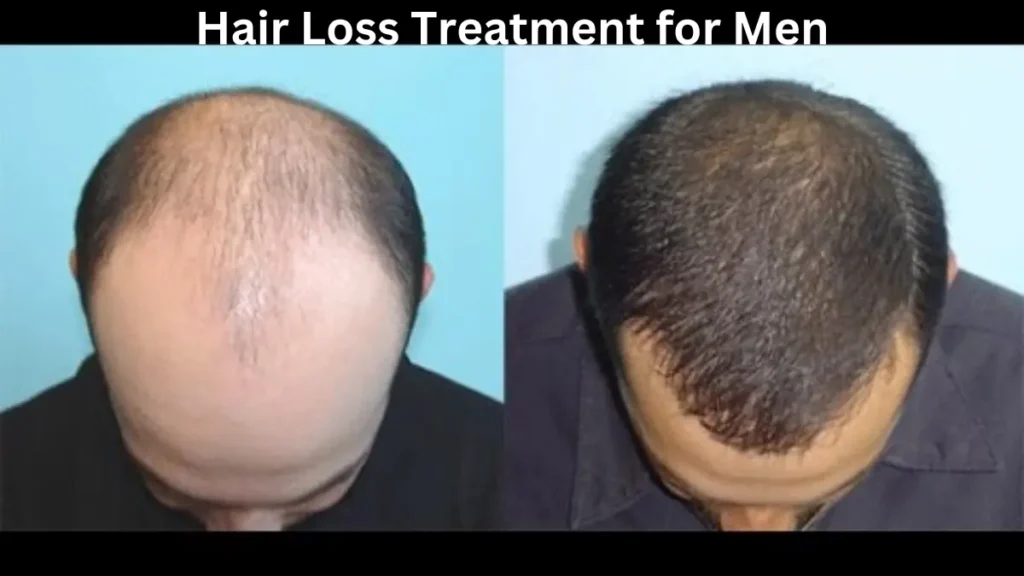
Hair Loss Treatment for Men: Hair loss is a common concern among men, with around 85% of men experiencing noticeable hair thinning by the time they reach 50. This issue can start much earlier, often in their 20s or 30s. While male-pattern baldness (androgenetic alopecia) is the most common cause, other factors such as stress, diet, and medical conditions can contribute to hair loss. Fortunately, there are several effective treatments available to help men regain their confidence and prevent further hair thinning. In this article, we’ll explore the causes of hair loss in men, the best treatment options, and lifestyle changes to help keep your hair healthy.
Book Your Consultation Today
Visit Dr. Hanan Dermatology Specialty Clinic in Padur, OMR, Chennai. Schedule your consultation today and start your journey to fuller, healthier hair.
For more information and to book your appointment, visit our clinic or call us at the clinic’s contact details.
Hair Loss Treatment for Men: Effective Solutions for Hair Regrowth
Understanding Hair Loss in Men
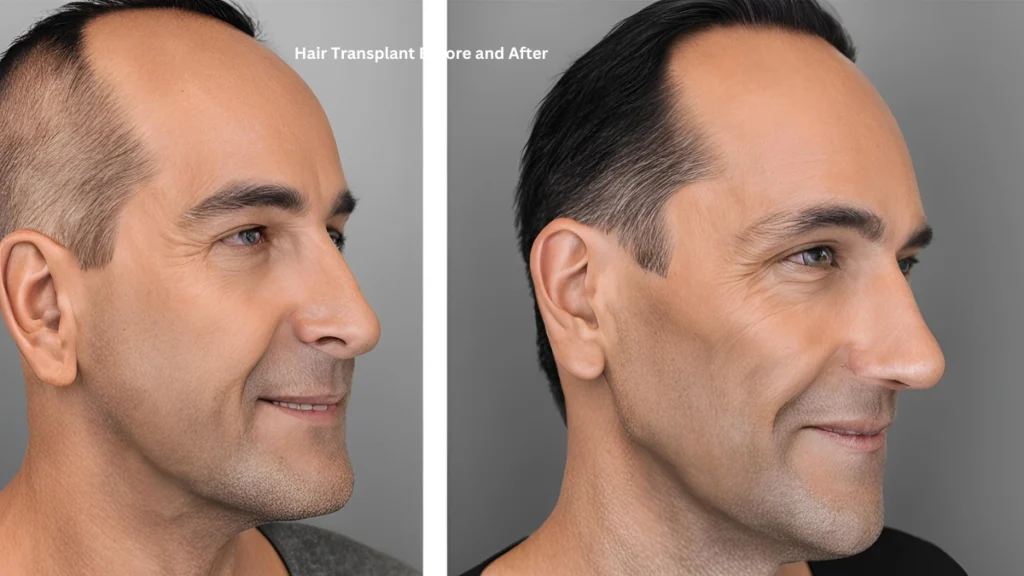
What Causes Hair Loss?
Hair loss in men typically results from male-pattern baldness, a hereditary condition influenced by genetics and hormones. The hormone dihydrotestosterone (DHT) plays a key role in shrinking hair follicles, eventually preventing hair from growing. While male-pattern baldness is inevitable for many men, other causes of hair loss include:
- Hormonal imbalances: Changes in testosterone and other hormones can accelerate hair thinning.
- Stress: Physical or emotional stress can lead to temporary hair shedding known as telogen effluvium.
- Nutritional deficiencies: A lack of essential nutrients like protein, iron, and vitamins can weaken hair.
- Medical conditions: Thyroid issues, alopecia areata, and scalp infections may also contribute to hair loss.
Common Types of Hair Loss
Hair loss can manifest in several ways:
- Receding hairline: A gradual retreat of hair along the temples or forehead.
- Thinning crown: A thinning patch that begins at the top of the scalp and spreads.
- Full bald spots: Larger areas of hair loss, often at the crown or the top of the head.
Read more: Hair Transplant Before and After
Non-Surgical Treatments for Hair Loss
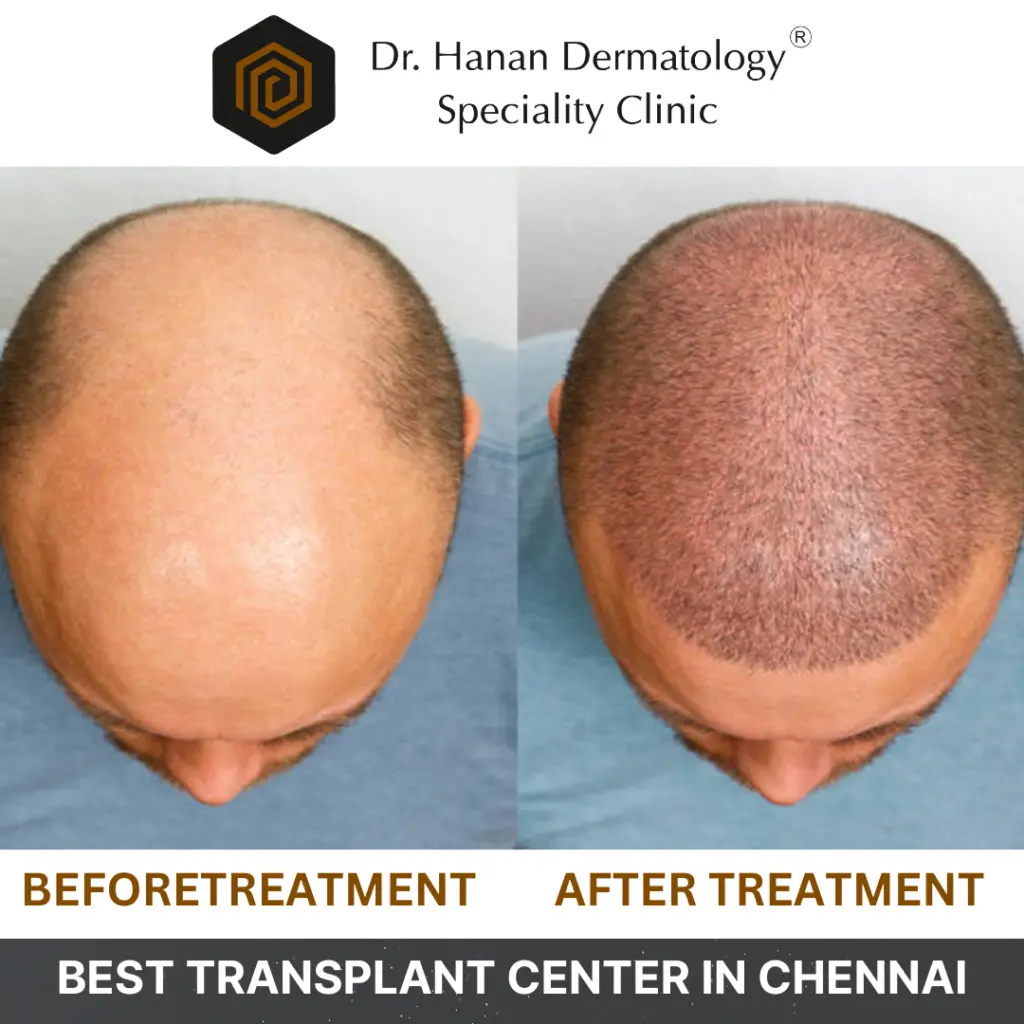
1. Medications
For many men, medications offer the best solution to slow down or reverse hair loss.
- Minoxidil (Rogaine): This FDA-approved over-the-counter treatment is applied topically to the scalp. It works by stimulating hair follicles, encouraging new hair growth, and slowing further hair loss. Minoxidil is suitable for men with mild to moderate hair loss. However, it requires ongoing use—discontinuing treatment results in the return of hair loss.
- Finasteride (Propecia): This prescription pill works by inhibiting DHT, the hormone responsible for hair follicle shrinkage. Finasteride can help men regrow hair, particularly at the crown or along the hairline. However, it can have side effects, including a decrease in libido, and is not suitable for women.
2. Platelet-Rich Plasma (PRP) Therapy
PRP therapy involves extracting platelets from your blood and injecting them into the scalp to stimulate hair growth. The growth factors in platelets encourage the regeneration of hair follicles. PRP is a non-invasive treatment that works well for men experiencing hair thinning. Results can take several months to become noticeable, and multiple sessions are often needed.
3. Low-Level Laser Therapy (LLLT)
Laser therapy uses low-level lasers to stimulate hair follicles and increase blood circulation to the scalp. It’s a non-invasive procedure that can be performed at home using laser combs or helmets. LLLT has shown positive results in promoting hair growth, although results can vary from person to person.
4. Hair Growth Shampoos and Conditioners
Specially formulated shampoos and conditioners can add volume to thinning hair. Look for products containing ingredients like biotin, caffeine, or ketoconazole. While these products may not regrow hair, they can help manage thinning hair by improving scalp health and reducing hair breakage.
Read more: Best Hair Transplant Center in Chennai 2024
Surgical Solutions for Hair Loss
1. Hair Transplant Surgery
Hair transplants are a permanent solution for severe hair loss. During the procedure, healthy hair follicles are moved from the back or sides of the scalp to the thinning or balding areas. There are two main types of hair transplants:
- FUT (Follicular Unit Transplantation): A strip of scalp is removed, and hair follicles are transplanted to the balding areas.
- FUE (Follicular Unit Extraction): Individual hair follicles are extracted and transplanted, leaving minimal scarring.
While hair transplants provide long-lasting results, they are expensive and may require multiple sessions.
2. Scalp Micropigmentation
Scalp micropigmentation (SMP) is a non-surgical treatment that involves tattooing tiny dots of pigment onto the scalp to create the appearance of fuller hair. It’s ideal for men with shaved or closely cropped hair. While it doesn’t restore hair, it can help improve the appearance of a receding hairline or thinning crown.
3. Hairpieces and Wigs
For those looking for immediate results, hairpieces and wigs are an option. Advances in hairpiece technology mean that they can look incredibly natural, though they do require regular maintenance and can be costly over time.
Lifestyle Changes to Prevent or Slow Down Hair Loss
1. Diet and Nutrition
A well-balanced diet is essential for maintaining healthy hair. Ensure you’re getting enough of the following nutrients:
- Iron: A deficiency can lead to hair shedding.
- Vitamin D: Crucial for follicle health.
- Biotin: Supports hair growth and strength.
- Omega-3 fatty acids: Help maintain healthy scalp circulation.
Avoid excessive consumption of vitamin A and processed foods, as these can contribute to hair thinning.
2. Stress Management
Chronic stress can lead to hair loss, so it’s important to manage stress through relaxation techniques such as yoga, meditation, or regular exercise. These practices not only benefit your mental health but also promote healthy hair growth.
3. Proper Hair Care Routine
Treat your hair gently to prevent damage. Avoid harsh chemicals, excessive heat styling, and tight hairstyles that can cause breakage. Wash your hair regularly with a gentle shampoo, and use a conditioner to keep it hydrated.
Myths and Misconceptions About Hair Loss Treatments
Many myths surround hair loss and treatments. It’s important to separate fact from fiction:
- Myth: Wearing hats causes hair loss. Fact: Hats do not cause hair loss, though tight-fitting hats may lead to traction alopecia.
- Myth: Hair loss treatments work instantly. Fact: Most treatments require time to show results, and consistency is key.
How to Choose the Right Treatment for You

Selecting the right hair loss treatment depends on various factors such as your age, the stage of hair loss, and your budget. Non-surgical treatments like minoxidil and finasteride are often the first options to explore, while surgical solutions like hair transplants may be considered for more severe cases. Always consult with a dermatologist or hair restoration expert to determine the best course of action based on your individual needs.
Read more: Hair Replacement in Chennai Top Clinics, Methods & Cost 2025
Conclusion
Hair loss is a natural part of aging for many men, but it doesn’t have to mean the end of your hair. With various treatment options available, from medications and therapies to surgical solutions, there’s hope for those looking to regain their hair and confidence. Start early, stay consistent with your treatment plan, and make lifestyle changes to maintain healthy hair for as long as possible.
Remember, whether you choose non-surgical treatments or surgical options, the key is finding a solution that works for you. Hair loss doesn’t define you—take control of your hair health and feel confident at any stage of life.
FAQs
What is the most effective treatment for male-pattern baldness?
The most effective treatments for male-pattern baldness are medications like Minoxidil (Rogaine) and Finasteride (Propecia). Minoxidil is an over-the-counter topical treatment that helps stimulate hair growth, while Finasteride is an FDA-approved oral medication that inhibits DHT (dihydrotestosterone), the hormone responsible for hair follicle shrinkage. Both treatments are most effective when used early, and results can vary from person to person.
How long does it take for hair loss treatments to show results?
Hair loss treatments typically take 3 to 6 months to show visible results. With Minoxidil, it may take up to 4 months to start seeing new hair growth. Finasteride generally requires at least 3 to 6 months to begin slowing hair loss and promoting hair regrowth. Patience and consistent use are crucial for achieving optimal results.
Are hair transplants worth the cost?
Hair transplants can be a permanent solution for severe hair loss, but they are expensive, with costs often ranging from ₹50,000 to ₹1,50,000 or more depending on the procedure type (FUT or FUE) and the number of grafts required. They offer natural-looking results and can provide a long-lasting solution for hair restoration. However, multiple sessions may be needed, and there’s always the risk of complications. It’s essential to consult with a certified hair transplant surgeon to determine if you’re a good candidate.
Do PRP (Platelet-Rich Plasma) injections work for hair regrowth?
PRP therapy has been shown to be effective for many men experiencing hair thinning. It involves injecting your own platelets into the scalp to stimulate hair growth. While it is a non-invasive option with minimal downtime, multiple sessions are often required for noticeable results, and it may not be suitable for everyone. PRP works best for men in the early stages of hair loss or those with thinning hair.
Can lifestyle changes help prevent hair loss?
Yes, adopting a healthy lifestyle can significantly help prevent or slow down hair loss. Key changes include:
- Eating a balanced diet rich in vitamins, iron, and protein to nourish the hair follicles.
- Managing stress through relaxation techniques like yoga or meditation.
- Using gentle hair care products and avoiding excessive heat or tight hairstyles.
Although lifestyle changes may not reverse male-pattern baldness, they can help maintain the health of your hair and slow down further thinning.
PRP vs GFC Hair Treatment in Chennai: Which is Best for Hair Regrowth?
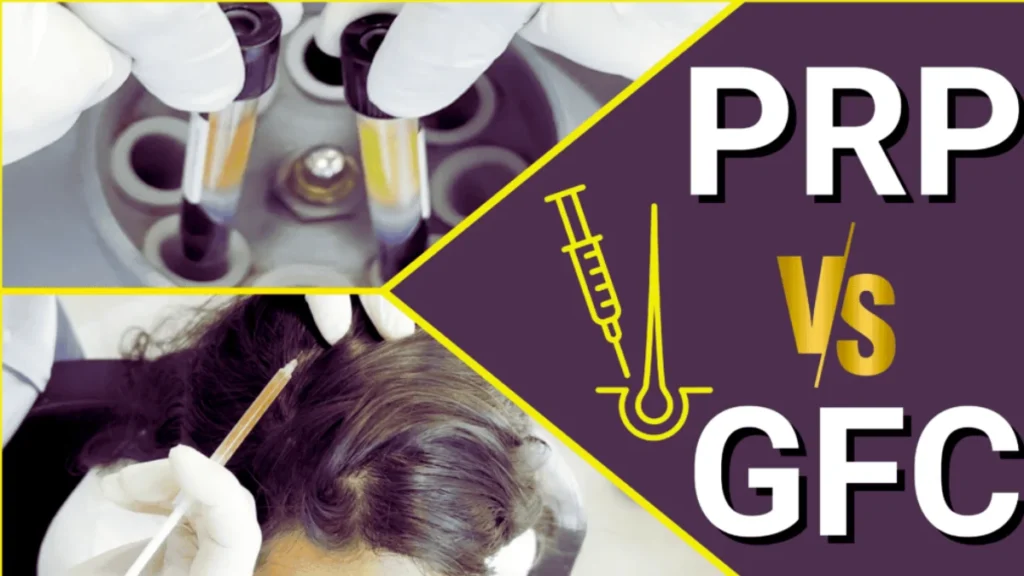
PRP vs GFC Hair Treatment in Chennai: Hair loss is a common concern that affects millions of people worldwide, and finding an effective solution is crucial. For those considering a hair transplant in Chennai, combining advanced treatments like PRP (Platelet-Rich Plasma) and GFC (Growth Factor Concentrate) has become a popular approach. These treatments can significantly enhance the results of your hair restoration journey by promoting hair regrowth and improving the overall health of your hair follicles. In this guide, we’ll explore how PRP and GFC can boost the success of your hair transplant in Chennai and help you achieve the desired results.
Book Your Consultation Today
Visit Dr. Hanan Dermatology Specialty Clinic in Padur, OMR, Chennai. Schedule your consultation today and start your journey to fuller, healthier hair.
For more information and to book your appointment, visit our clinic or call us at the clinic’s contact details.
PRP vs GFC Hair Treatment in Chennai: Which is Best for Hair Regrowth?
What is a hair transplant?
A hair transplant is a surgical procedure that involves moving hair follicles from one area of the scalp (usually the back or sides) to thinning or balding areas. The two most common types of hair transplant techniques are:
- FUE (Follicular Unit Extraction): A minimally invasive technique where individual hair follicles are extracted and transplanted.
- FUT (Follicular Unit Transplantation): Involves removing a strip of scalp and dissecting it into follicular units for transplantation.
Hair transplants are popular because they offer long-lasting, natural-looking results. When combined with treatments like PRP and GFC, the healing process is accelerated, and the overall effectiveness is enhanced.
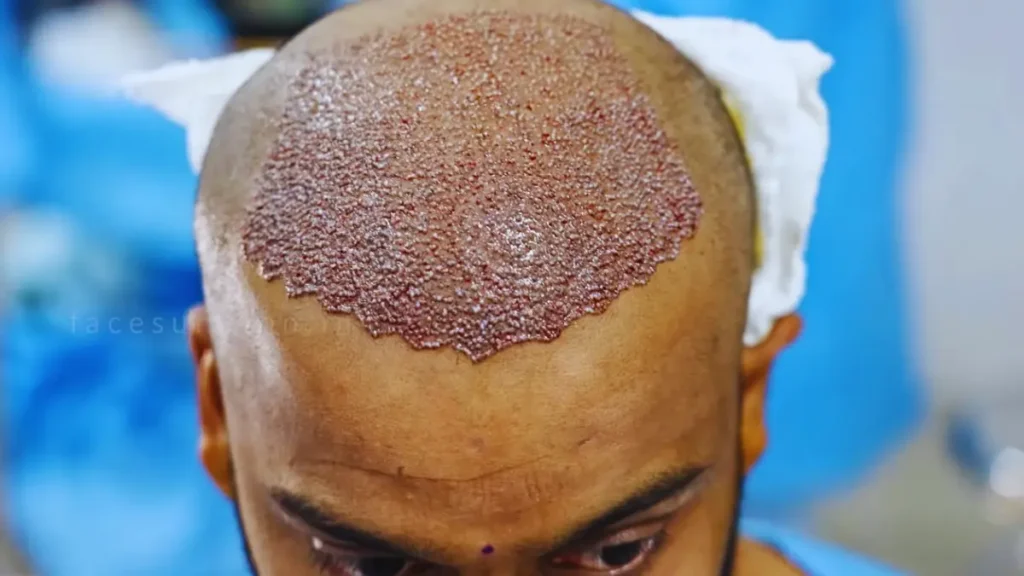
PRP and GFC: Tied Plan Overview
When opting for both treatments as part of a tied plan, the idea is to combine the regenerative benefits of both therapies to boost hair growth. Often, clinics offer bundled packages where both PRP and GFC treatments are included in a series of sessions to achieve enhanced results.
Key Points of a Tied Plan for PRP & GFC:
- Combination of Benefits:
- PRP uses your blood’s plasma enriched with platelets to stimulate hair follicles, encouraging hair growth.
- GFC (a more advanced form of PRP) is derived from a more concentrated portion of the blood, specifically the growth factors, which are then injected into the scalp to accelerate hair restoration.
- Session Plan:
- Typically, a tied plan will include multiple sessions of both treatments spaced out over a few months, with follow-up sessions (booster sessions) to maintain results.
- Cost Effectiveness:
- Opting for both therapies in a tied plan can often be more cost-effective than paying for each treatment separately.
Avid Treatment (Post-Treatment Care) and Waiting Period
Avid refers to the aftercare needed post-treatment. This could involve using products that support hair regrowth and maintain the health of the scalp.
- Post-Treatment Care for PRP and GFC:
- Avoid sun exposure: Direct sunlight can irritate the scalp after these treatments.
- No strenuous exercise: Avoid sweating or any activity that might cause scalp irritation in the first few days.
- Avoid hair washing: Typically, patients are advised to avoid washing their hair for at least 24-48 hours after both PRP and GFC treatments.
- Use prescribed shampoos: Your dermatologist may recommend gentle, medicated shampoos for aftercare.
How Many Days to Wait Between PRP and GFC Treatments?
If you plan to undergo both PRP and GFC treatments, here’s the general waiting period between sessions:
- GFC After PRP: You typically have to wait 3 to 4 weeks after a PRP session before starting GFC treatment. This allows your scalp to heal from the initial PRP procedure and gives time for the growth factors to start working.
- PRP After GFC: Similarly, if you start with GFC, it’s recommended to wait around 3 to 4 weeks before undergoing PRP to prevent any potential overlap in recovery time and to maximize the effectiveness of each treatment.
This allows the full benefits of each procedure to manifest before the next one is introduced, ensuring that your hair restoration process is both safe and effective.
In summary, while a combined PRP and GFC treatment plan can provide enhanced results, it’s important to follow the suggested waiting periods and post-treatment care to ensure optimal outcomes. Always consult with your hair restoration specialist for personalized guidance.
| Feature | PRP (Platelet-Rich Plasma) | GFC (Growth Factor Concentrate) |
|---|---|---|
| Source | Uses the patient’s own blood to extract platelets. | Uses the patient’s blood to concentrate growth factors. |
| Concentration | Moderate concentration of platelets and growth factors. | Higher concentration of growth factors compared to PRP. |
| Procedure | Blood is drawn, processed to extract platelets, and injected into the scalp. | Blood is drawn, processed to extract a higher concentration of growth factors, and injected into the scalp. |
| Primary Benefit | Stimulates dormant hair follicles, promotes hair growth. | Accelerates hair follicle regeneration with more potent growth factors. |
| Ideal For | Early stages of hair thinning, hair regeneration. | For faster recovery and more robust hair growth in advanced stages of hair loss. |
| Treatment Duration | Typically requires 3-6 sessions, spaced a few weeks apart. | Generally requires 3-6 sessions, with similar spacing as PRP. |
| Cost | ₹10,000 to ₹20,000 per session | ₹15,000 to ₹30,000 per session |
| Side Effects | Minimal, as it uses the patient’s own blood. | Minimal, also uses the patient’s own blood/cells. |
| Post-Treatment Care | Gentle massage, avoid sun exposure and harsh chemicals. | Similar post-care as PRP, with additional monitoring of progress. |
| Healing Time | Quick recovery, noticeable results within 3-6 months. | Quicker results and slightly faster healing due to the higher concentration of growth factors. |
Understanding PRP (Platelet-Rich Plasma) Treatment
PRP (Platelet-Rich Plasma) treatment is a non-surgical therapy that involves using your own blood to stimulate hair growth. The process includes:
- Blood Drawn: A small amount of blood is drawn from the patient.
- Centrifugation: The blood is processed to extract the platelet-rich plasma.
- Injection: The PRP is then injected into the scalp in areas where hair thinning is occurring.
PRP works by stimulating dormant hair follicles and promoting natural hair regrowth. The growth factors present in platelets accelerate the healing process, making it an effective complement to a hair transplant. This treatment is safe, as it uses the patient’s own blood, reducing the risk of infection or allergic reactions.
Understanding GFC (Growth Factor Concentrate) Treatment
GFC (Growth Factor Concentrate) treatment is similar to PRP but uses a higher concentration of growth factors. The procedure involves drawing the patient’s blood, which is then processed to extract a more potent concentration of growth factors. These growth factors are then injected into the scalp to stimulate hair follicles, improve circulation, and encourage faster, more robust hair growth.
While PRP promotes hair growth by rejuvenating hair follicles, GFC takes it a step further by providing a concentrated dose of healing factors that can lead to quicker recovery and more visible results. The combination of PRP and GFC enhances the effects of a hair transplant, offering a more complete solution to hair loss.
Why Choose PRP and GFC for Hair Restoration in Chennai?
Chennai is home to some of the best hair transplant clinics in India, offering advanced treatments like PRP and GFC. These treatments are highly effective in promoting hair growth after a transplant, making them ideal for those looking for quicker, more natural results.
- PRP and GFC Benefits: Both treatments are minimally invasive, quick, and show noticeable results within a few months. They enhance the success of hair transplants by stimulating hair growth and improving the health of existing follicles.
- Experienced Surgeons: Chennai boasts skilled and experienced surgeons who specialize in both PRP and GFC, ensuring high success rates for hair restoration procedures.
- Affordability: Compared to cities like Delhi and Mumbai, the cost of hair transplants with PRP and GFC in Chennai is more affordable, making it a preferred destination for hair restoration.
Top Clinics for PRP and GFC Hair Transplants in Chennai
Several clinics in Chennai offer exceptional hair transplant services with PRP and GFC treatments. Some of the top clinics include:
- Hair Restoration Clinic Chennai: Known for its cutting-edge techniques in hair restoration and Chennai, this clinic offers both PRP and GFC treatments.
- Clinic 360: A leading clinic offering personalized hair transplant solutions, including PRP and GFC therapies, tailored to individual needs.
- Viva Cosmetic Surgery: With a focus on advanced hair transplant techniques, Viva Cosmetic Surgery is renowned for delivering high-quality results in hair restoration.
When choosing a clinic, ensure they have a strong reputation, experienced doctors, and positive reviews from previous clients. It’s important to consult with a specialist who can assess your specific needs and recommend the best course of action.
The Cost of Hair Transplant in Chennai with PRP and GFC
| Factor | Impact on Cost |
|---|---|
| Number of Sessions | Increases with additional booster sessions. |
| Severity of Hair Loss | Higher severity may require more intense or extended treatment, increasing the cost. |
| Area to be Treated | Larger areas to be treated can increase the cost. |
| Clinic’s Location | Clinics in metro cities like Bangalore tend to be more expensive. |
| Technology and Equipment | Advanced equipment and technology can raise treatment costs. |
The cost of hair transplant surgery with PRP and GFC treatments in Chennai varies based on the extent of the procedure and the clinic’s reputation. On average, you can expect the following price ranges:
- Hair Transplant: ₹40,000 to ₹1,50,000 (depending on the technique and the number of grafts required).
- PRP Treatment: ₹10,000 to ₹20,000 per session.
- GFC Treatment: ₹15,000 to ₹30,000 per session.
| Cost Range | Amount |
|---|---|
| Single Session Cost (Bangalore) | ₹1,000 to ₹15,000 |
| Total Treatment Cost | ₹20,000 to ₹1 lakh or more depending on the factors above. |
Some clinics offer packages that include both PRP or GFC treatments with the hair transplant procedure, which can be a cost-effective option. It’s important to ask about financing options and payment plans, as many clinics offer flexible payment structures.

Read more: Hair Growth Surgery Cost
Post-Operative Care for Hair Transplant with PRP and GFC
After your hair transplant, following proper post-operative care is crucial for optimal results. Here’s what you can expect:
- Medicines: Pain relievers, anti-inflammatory medications, and antibiotics may be prescribed.
- Post-Transplant Care: It’s important to avoid touching or scratching the scalp to prevent infection. You should also avoid direct sun exposure for several weeks after the procedure.
- PRP and GFC Recovery: Both treatments help accelerate healing, promote quicker hair growth, and reduce swelling or scarring. Regular follow-up sessions are usually recommended to monitor progress.
With the added benefit of PRP and GFC, you will experience faster healing and better hair growth results, making the recovery process smoother.
Common FAQs About PRP vs GFC Hair Treatment in Chennai
1. How long does it take for hair transplants to show results?
It typically takes 6 to 12 months to see the full results of a hair transplant, though with PRP or GFC, you may see noticeable improvements in hair density sooner.
2. Are PRP and GFC treatments safe?
Yes, both treatments are safe as they use your own blood (in the case of PRP) or your own cells (in the case of GFC), minimizing the risk of allergic reactions or side effects.
3. How many sessions of PRP or GFC are required?
Usually, 3 to 6 sessions of PRP or GFC are recommended Event, spaced a few weeks apart. The exact number will depend on the individual’s hair restoration goals.
4. Can PRP and GFC be combined with other hair loss treatments?
Yes, PRP and GFC can be used alongside other hair restoration treatments, including medications like minoxidil or finasteride, for enhanced results.
Conclusion
If you’re looking for the best hair transplant options in Chennai, combining PRP and GFC treatments with a hair transplant can significantly improve your results. These advanced treatments not only enhance the healing process but also promote quicker hair regrowth and healthier, denser hair. Consult with a reputable clinic in Chennai to determine the best treatment plan tailored to your needs and start your journey towards fuller, more vibrant hair.
Hair Transplant Results – What to Expect Before and After Treatment
Hair Transplant Results – What to Expect Before and After Treatment
Expert Tips to Choose the Best Hair Transplant result in Chennai

Hair Transplant Results: When considering hair restoration, one of the most common questions patients ask is about hair transplant results. Understanding what results look like, how long they take, and what factors influence success helps set realistic expectations and builds confidence in the treatment.
At Dr. Hanan Dermatology Speciality Clinic, patients receive personalized care focused on achieving natural, long-lasting hair transplant results.
What Are Hair Transplant Results?
Hair transplant results refer to the visible improvement in hair density, hairline shape, and overall scalp coverage after the transplanted hair follicles begin to grow naturally. Since the procedure uses your own hair, the results blend seamlessly with existing hair and look completely natural.
Hair Transplant Results Timeline
Hair growth after a transplant happens gradually:
First Week: Healing of the scalp and graft settling
1–2 Months: Temporary shedding of transplanted hair (normal phase)
3–4 Months: New hair growth begins
6 Months: Noticeable improvement in density
9–12 Months: Final, full hair transplant results
Patience is key, as hair grows in cycles.
Before and After Hair Transplant Results
Patients often notice:
Improved hairline definition
Better coverage in thinning or bald areas
Increased confidence and appearance
Results may vary between men and women depending on hair loss patterns and donor hair quality.
Factors That Affect Hair Transplant Results
Several factors influence the final outcome:
Doctor’s experience and technique
Quality and strength of donor hair
Chosen method (FUE or DHI)
Proper post-procedure care
Advanced Techniques That Improve Results
Modern techniques such as FUE (Follicular Unit Extraction) and DHI (Direct Hair Implantation) allow precise graft placement, minimal scarring, and faster healing—leading to more natural results.
Realistic Expectations vs Common Myths
Hair transplants do not give instant results, and full density takes time. Transplanted hair does not fall permanently once growth is established. Natural density depends on donor hair availability and scalp condition.
Hair Transplant Results at Dr. Hanan Dermatology Speciality Clinic
Dr. Hanan Dermatology Speciality Clinic focuses on:
Customized treatment plans
Natural hairline design
Ethical medical guidance
Long-term patient satisfaction
FAQs
When will I start seeing hair transplant results?
Most patients begin to notice new hair growth around 3 to 4 months after the procedure. Visible improvement in density is usually seen by 6 months, with final results appearing between 9 and 12 months.
Are hair transplant results permanent?
Yes, hair transplant results are permanent. The transplanted hair follicles are resistant to hair loss and continue to grow naturally for a lifetime.
Is it normal for transplanted hair to fall out initially?
Yes, temporary shedding during the first 1–2 months is normal. This is known as the shedding phase, and new hair growth follows afterward.
Do hair transplant results look natural?
When performed by experienced dermatologists using advanced techniques like FUE or DHI, the results look completely natural in direction, density, and hairline design.
Can hair transplant results vary from person to person?
Yes, results depend on factors such as donor hair quality, hair type, age, scalp condition, and post-procedure care.
Are hair transplant results different for men and women?
The results are equally effective for men and women, but treatment planning differs based on hair loss patterns and density needs.
How can I maintain my hair transplant results?
Following post-procedure care instructions, using prescribed medications, maintaining a healthy lifestyle, and attending follow-up appointments help ensure long-lasting results.
Is one hair transplant enough for good results?
For many patients, one session is sufficient. In some cases, additional sessions may be recommended for increased density or progressive hair loss.
Book Your Consultation Today!
For Personalised Treatment visit Dr. Hanan Clinic. Feel confident and proud with our expert care.
Table of Contents
Is Hair Transplant Safe? Expert Insights from Dr. Hanan Dermatology Speciality Clinic, Chennai
Is Hair Transplant Safe? Expert Insights from Dr. Hanan Dermatology Speciality Clinic, Chennai
Understand hair transplant safety, modern techniques, and expert advice to ensure successful and risk-free hair restoration.

Is Hair Transplant Safe: Hair loss can be emotionally challenging, and many people considering treatment often ask one important question: Is hair transplant safe? With advances in medical technology and dermatology, hair transplant procedures today are safer, more precise, and more effective than ever—when performed by qualified professionals in a trusted clinic.
What Is a Hair Transplant?
A hair transplant is a medical procedure where healthy hair follicles are taken from a donor area (usually the back of the scalp) and implanted into areas affected by hair loss. Since the procedure uses your own hair, the risk of rejection is extremely low.
Modern hair transplant methods are minimally invasive and designed to ensure natural-looking, permanent results.
Is Hair Transplant a Safe Procedure?
Yes, hair transplant is considered a safe medical procedure when performed by experienced dermatologists or trained hair restoration surgeons. The safety largely depends on:
Doctor’s expertise
Quality of equipment
Hygiene standards
Proper patient evaluation
At certified clinics, hair transplants are done under local anesthesia, making them low-risk and comfortable.
Advanced Hair Transplant Techniques Improve Safety
Today’s techniques significantly reduce complications:
FUE (Follicular Unit Extraction): Minimally invasive with no stitches
DHI (Direct Hair Implantation): More control over hair angle and density
These methods ensure faster healing, minimal discomfort, and reduced downtime.
Who Is a Safe Candidate for Hair Transplant?
Hair transplant is safe for:
Men with male pattern baldness
Women with thinning hair
Individuals with good donor hair density
People in overall good health
A detailed consultation helps determine the safest and most suitable approach for each patient.
Possible Side Effects (Usually Temporary)
Some patients may experience:
Mild swelling or redness
Temporary itching
Shedding of transplanted hair (a normal phase)
These effects usually resolve on their own and are well-managed with proper aftercare.
Safety Measures at Dr. Hanan Dermatology Speciality Clinic
At Dr. Hanan Dermatology Speciality Clinic, patient safety is a top priority:
Procedures performed by qualified dermatology professionals
Strict sterilization and hygiene protocols
Advanced equipment and modern techniques
Personalized treatment and follow-up care
Recovery and Long-Term Safety
Most patients resume daily activities within a few days. New hair growth starts in 3–4 months, with full results visible in 9–12 months. Transplanted hair is permanent and natural-growing.
Conclusion – Is Hair Transplant Safe in Chennai?
When performed at a trusted clinic by experienced dermatologists, hair transplant is safe, effective, and life-changing. Choosing the right clinic ensures not only great results but also peace of mind.
If you’re considering hair restoration, consult experts who prioritize safety and transparency.
Book Your Consultation Today!
For Personalised Treatment visit Dr. Hanan Clinic. Feel confident and proud with our expert care.
FAQs
Is hair transplant safe for everyone?
Hair transplant is generally safe for most people, but suitability depends on factors such as age, overall health, type of hair loss, and donor hair availability. A proper medical consultation is essential before the procedure.
Is hair transplant painful?
Hair transplant is performed under local anesthesia, so pain during the procedure is minimal. Patients may feel mild discomfort or tightness afterward, which usually subsides within a few days.
Are there any long-term side effects of hair transplant?
No serious long-term side effects are associated with hair transplants when done by qualified dermatologists. Temporary redness, swelling, or itching may occur but usually resolves quickly.
Is hair transplant safe for women?
Yes, hair transplant is safe for women when the cause of hair loss is properly diagnosed. Women with thinning hair or widened parting often benefit from customized transplant techniques.
How safe is anesthesia used in hair transplant?
Hair transplant uses local anesthesia, which is considered very safe when administered by trained medical professionals.
What happens if transplanted hair falls out?
Initial shedding after a hair transplant is normal and temporary. New, permanent hair growth usually begins within 3 to 4 months.
How can I ensure a safe hair transplant in Chennai?
Choose a reputed clinic, verify doctor qualifications, ensure hygienic facilities, and avoid clinics offering unrealistic promises or extremely low prices.
Is hair transplant a permanent solution?
Yes, transplanted hair is permanent and continues to grow naturally like normal hair.
Table of Contents
Electrolysis Hair Removal in Chennai: The Ultimate Guide
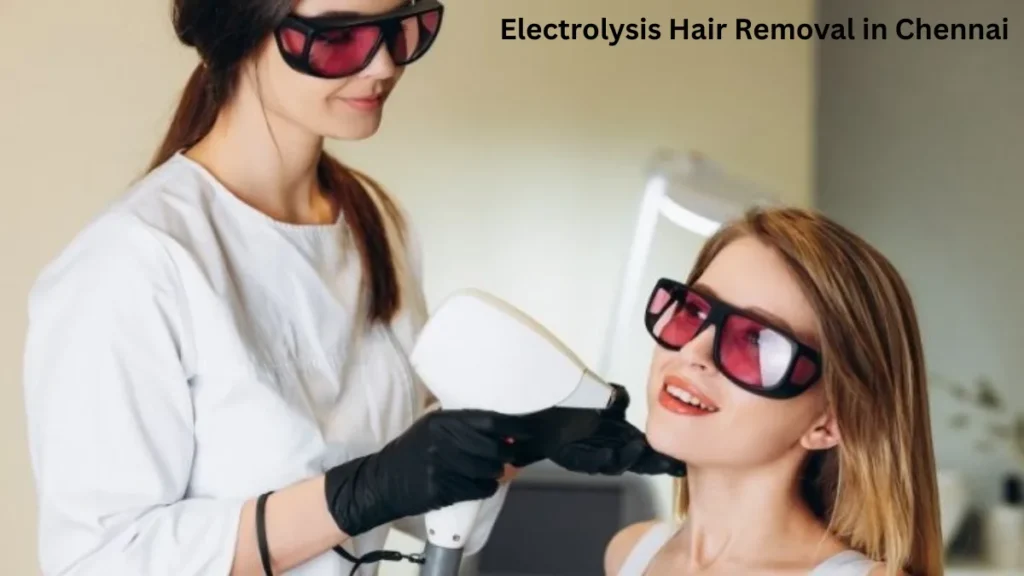
Electrolysis hair removal is one of the most effective and long-lasting methods for permanent hair removal, and it is gaining significant popularity in Chennai. Whether you’re looking for a solution to unwanted facial hair or a more permanent option for body hair, electrolysis offers several advantages. In this article, we will explore everything you need to know about electrolysis hair removal in Chennai, from its benefits to the best clinics and pricing.
Book Your Consultation Today
Visit Dr. Hanan Dermatology Specialty Clinic in Padur, OMR, Chennai. Schedule your consultation today and start your journey to fuller, healthier hair.
For more information and to book your appointment, visit our clinic or call us at the clinic’s contact details.
What is Electrolysis Hair Removal?
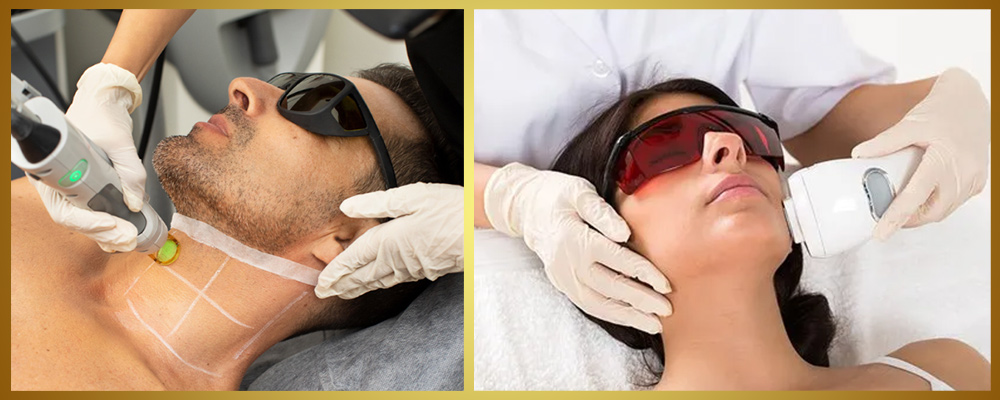
Electrolysis is a hair removal technique that uses electrical currents to destroy the hair follicle, preventing future hair growth. There are three main types of electrolysis:
- Galvanic Electrolysis: Involves a direct current to create a chemical reaction that destroys the hair follicle.
- Thermolysis: Uses a high-frequency current to generate heat that destroys the follicle.
- Blend Method: Combines both galvanic and thermolysis for faster results.
This method is FDA-approved and considered the only permanent hair removal solution. Electrolysis is highly precise, allowing treatment of even the smallest areas, such as the upper lip or eyebrows, making it suitable for people with all skin tones and hair types.
Read more: Laser Hair Reduction
Why Choose Electrolysis for Hair Removal in Chennai?
Chennai, with its warm climate and vibrant beauty culture, sees a growing demand for effective hair removal solutions. Electrolysis stands out for several reasons:
- Permanent Hair Removal: Unlike waxing, shaving, or even laser hair removal, electrolysis offers a permanent solution for hair removal. Once the follicle is destroyed, the hair will not regrow.
- Versatility: It works on all hair colors and skin types, making it an ideal option for individuals who may not be suitable candidates for laser hair removal.
- Precision: Electrolysis can treat even the finest hair, including those in sensitive areas like the eyebrows, chin, and bikini line.
- Safety: The method is safe for all skin types, reducing the risk of burns, pigmentation issues, or other side effects common with some other hair removal treatments.
Top Electrolysis Hair Removal Clinics in Chennai
Chennai is home to several well-established clinics offering electrolysis hair removal. Some of the best places to get this treatment include:
- Studio11: Known for their expert staff and top-notch facilities, Studio11 offers personalized electrolysis hair removal treatments, tailored to each client’s needs.
- Kaya Skin Clinic: Kaya offers a variety of advanced hair removal options, including electrolysis. They are well-regarded for their professionalism and attention to detail.
- The Aesthetic Clinic: Known for their comprehensive event skin care services, The Aesthetic Clinic offers electrolysis hair removal with a focus on safety and comfort.
Make sure to read reviews and consult with a professional before choosing a clinic to ensure that it meets your specific needs.
Benefits of Electrolysis Hair Removal in Chennai
Electrolysis offers several benefits that make it a popular choice for hair removal in Chennai:
- Long-lasting Results: Unlike temporary methods like waxing or shaving, electrolysis provides permanent hair removal. This is a huge advantage for individuals tired of constant maintenance.
- Works on All Hair Types: Whether you have thick, coarse hair or fine, light hair, electrolysis can effectively treat any type of hair, unlike laser hair removal which may not work on light or grey hair.
- Minimal Discomfort: While some discomfort may be felt during the procedure, modern technology has made the process much more comfortable compared to past methods.
- Ideal for Sensitive Areas: Electrolysis is highly precise, making it perfect for delicate and small areas like the upper lip, chin, and eyebrows.
- No Downtime: Post-treatment recovery is quick, with minimal side effects such as redness or swelling that usually dissipate within a few hours.
What to Expect During an Electrolysis Session
During an electrolysis session, the following steps are generally followed:
- Consultation: Before starting the treatment, you will have a consultation with a licensed practitioner. They will evaluate your skin and hair type to create a personalized treatment plan.
- The Procedure: A fine probe is inserted into each hair follicle. An electrical current is then applied to destroy the follicle, preventing future hair growth.
- Session Duration: Each session can last anywhere from 15 minutes to an hour, depending on the area being treated.
- Frequency: Depending on the size of the treatment area, multiple sessions may be required to fully treat the area. This is because hair grows in different stages, and electrolysis is effective only when the hair is in the active growth phase.
- Aftercare: Post-treatment care typically includes avoiding sun exposure and refraining from using harsh skin products for a few days. You may experience mild redness or swelling, but this should subside quickly.
Cost of Electrolysis Hair Removal in Chennai
The cost of electrolysis in Chennai can vary based on several factors, including the clinic’s reputation, the area being treated, and the size of the area. Generally, the pricing structure is as follows:
- Small Areas (upper lip, chin, eyebrows): ₹500 – ₹1,500 per session
- Larger Areas (legs, arms, back): ₹2,000 – ₹5,000 per session
While electrolysis may seem more expensive than other temporary hair removal methods, its permanent results make it a worthwhile investment in the long run.
Common Myths About Electrolysis Hair Removal
There are several misconceptions about electrolysis that may prevent people from considering it. Let’s debunk some of the most common myths:
- Myth: Electrolysis is Extremely Painful
- Fact: While you may feel mild discomfort during the treatment, it is usually not unbearable. The intensity of discomfort varies depending on your pain tolerance and the area being treated.
- Myth: Electrolysis is Only for Women
- Fact: Electrolysis is equally effective for both men and women, and many men choose this method for areas like the back or chest.
- Myth: Electrolysis Causes Scarring
- Fact: Electrolysis, when performed by a trained professional, does not cause permanent scarring. Any redness or swelling is temporary.
- Myth: Electrolysis Isn’t Permanent
- Fact: Electrolysis is the only FDA-approved permanent hair removal method.
Who is a Good Candidate for Electrolysis Hair Removal?
Electrolysis is suitable for almost everyone. However, certain factors may make you a better candidate:
- Skin and Hair Type: Electrolysis works on all skin tones and hair types, including light and grey hair, unlike laser treatments.
- Medical Conditions: If you have specific medical conditions, such as skin disorders or active infections, you should consult a dermatologist before opting for electrolysis.
- Pregnancy: While electrolysis is safe, it is recommended to avoid treatments during pregnancy due to potential hormonal changes.
Conclusion
Electrolysis hair removal is an excellent option for those seeking permanent and precise hair removal in Chennai. With its proven effectiveness, minimal discomfort, and long-lasting results, it’s no surprise that more people are choosing electrolysis over other methods. Whether you’re looking to treat small areas or larger regions, electrolysis can meet your needs. Make sure to choose a reputable clinic and schedule a consultation to get started on your journey to smooth, hair-free skin.
If you’re considering electrolysis, now is the perfect time to consult with an expert and experience the benefits for yourself!
Advanced Skin, Hair, and Laser Clinic: Your Ultimate Destination for Modern Skin and Hair Care
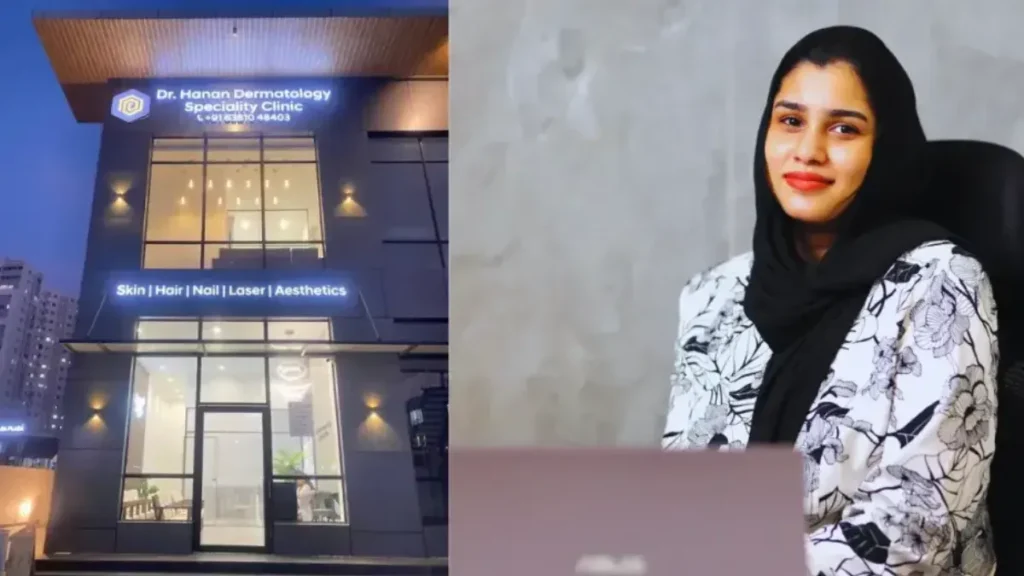
In today’s fast-paced world, maintaining healthy, glowing skin and strong, vibrant hair has become a priority for many individuals. With technological advancements, the approach to skincare and haircare has evolved, moving beyond traditional remedies to more effective, non-invasive treatments. Advanced Skin, Hair, and Laser Clinics are at the forefront of this revolution, providing cutting-edge solutions for your skin and hair concerns.
In this article, we’ll explore why choosing an advanced skin, hair, and laser clinic can be a game-changer for your beauty and self-confidence
Book Your Consultation Today
Visit Dr. Hanan Dermatology Specialty Clinic in Padur, OMR, Chennai. Schedule your consultation today and start your journey to fuller, healthier hair.
For more information and to book your appointment, visit our clinic or call us at the clinic’s contact details.
.
Why Choose an Advanced Skin, Hair, and Laser Clinic?
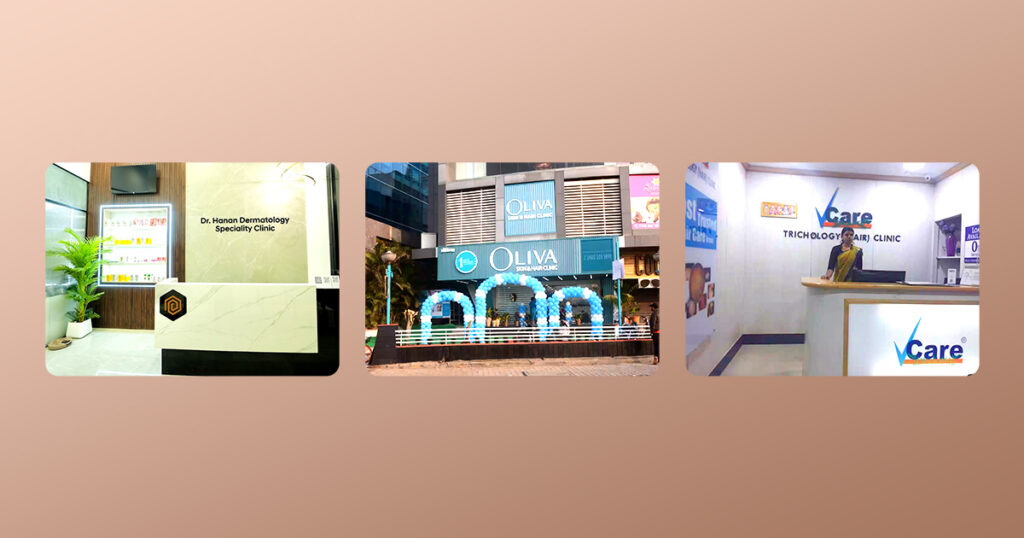
Advanced skin, hair, and laser clinics offer a range of benefits, making them the ideal choice for anyone looking to enhance their appearance. Here are some reasons why these clinics stand out:
- Cutting-edge Technology: These clinics utilize the latest medical-grade machines and techniques to ensure high-quality results. From laser hair removal to anti-aging treatments, technology plays a vital role in delivering effective and safe results.
- Personalized Care: Experienced dermatologists assess your unique skin and hair needs, ensuring treatments are tailored to your requirements for the best outcome.
- Non-invasive Procedures: Many of the treatments offered are non-surgical, meaning minimal discomfort and faster recovery times.
- Long-lasting Results: Whether you’re looking for acne treatments, hair restoration, or skin rejuvenation, advanced clinics provide solutions with long-lasting effects.
Services Offered at Advanced Skin, Hair, and Laser Clinics

Advanced skin, hair, and laser clinics provide a comprehensive range of services designed to address a variety of skin and hair concerns. Here are some of the most popular treatments:
1. Skin Care Treatments
- Acne Treatment: Target acne at its root with laser therapies, chemical peels, and medical-grade skincare.
- Anti-aging Solutions: Reduce the appearance of wrinkles, fine lines, and sagging with treatments like Botox, dermal fillers, and laser resurfacing.
- Scar Removal: Laser treatments like fractional CO2 laser effectively treat acne scars and other skin imperfections.
- Skin Rejuvenation: Restore a youthful glow with non-invasive skin treatments that remove dead skin cells and improve overall skin texture.
- Skin Lightening & Brightening: Treatments like chemical peels and laser therapies can lighten dark spots, hyperpigmentation, and even out skin tone.
2. Hair Care Treatments
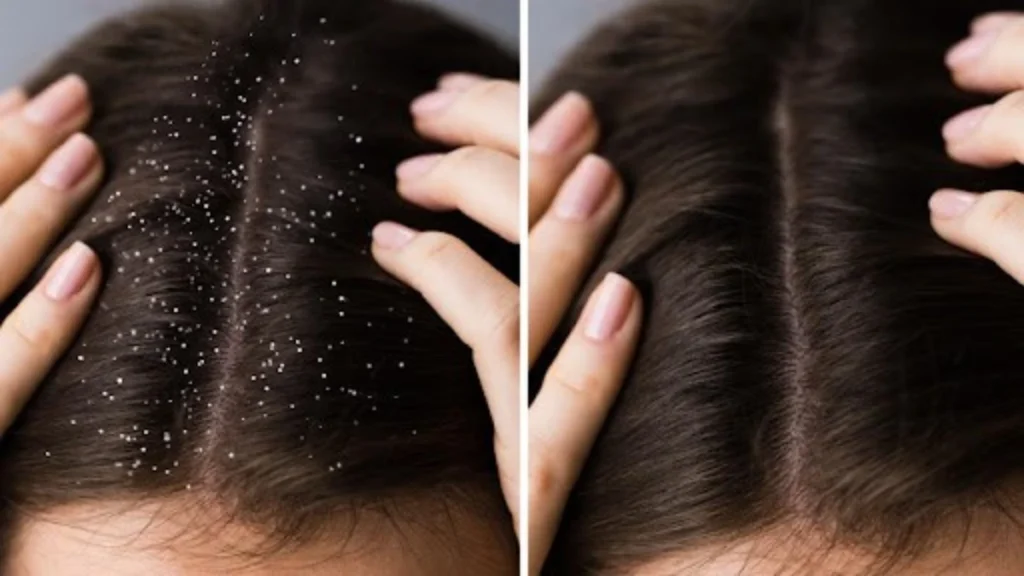
- Hair Restoration: Solutions like PRP (Platelet-Rich Plasma) therapy and stem cell treatments help regenerate hair follicles and promote natural hair growth.
- Hair Reduction: Say goodbye to unwanted hair with laser hair removal techniques that provide smooth skin with permanent results.
- Scalp Treatments: Combat hair fall, dandruff, and thinning hair with specialized scalp care treatments and therapies.
Read more: Dandruff Treatment A Complete Guide to a Healthier Scalp
3. Laser Treatments
- Laser Hair Removal: A popular option for permanent hair removal, these treatments can be done on various body areas, including the face, arms, legs, and bikini line.
- Laser Skin Resurfacing: Reduces wrinkles, fine lines, and scarring while improving skin texture and tone.
- Tattoo Removal: Laser technology is used to safely remove tattoos without damaging the surrounding skin.
- Fractional CO2 Laser: A highly effective method to treat scars, wrinkles, and large pores, helping to improve skin texture.
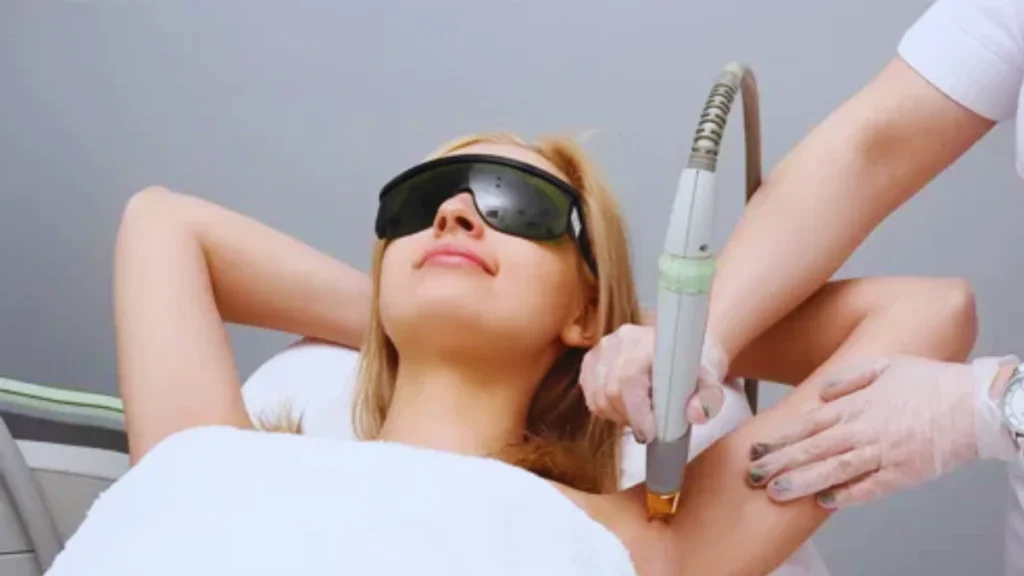
Technology Used in Advanced Clinics
The technology used in advanced skin, hair, and laser clinics is critical in ensuring effective and safe treatments. Some of the most widely used technologies include:
- Nd:YAG Lasers: These lasers are highly effective for dark skin tones, offering effective hair removal and skin treatments without side effects.
- Diode Lasers: Known for their precision, diode lasers are used for hair removal and skin treatments across various skin types.
- FDA-Approved Equipment: Ensuring that all machines are FDA-approved guarantees safety and reliability, providing you with optimal results.
Read more: Private Part Hair Removal in Chennai
Experienced Dermatologists and Experts
Advanced clinics are home to experienced, qualified dermatologists who have extensive training in the latest skin and hair treatments. These professionals bring their expertise to ensure that each patient receives the best care possible. Whether you need help with acne, hair restoration, or anti-aging treatments, skilled dermatologists are there to guide you through your journey.
Dr. M. Shraddha, a renowned dermatologist and a member of the American Academy of Anti-Aging Medicine, heads many clinics. With over 15 years of experience, she and her team bring their expertise to every treatment.
Safety and Hygiene Standards
When it comes to cosmetic treatments, safety is paramount. Advanced skin, hair, and laser clinics prioritize hygiene and follow strict sterilization protocols. The use of single-use equipment, thorough sanitization, and regular safety checks ensures that patients receive safe and hygienic treatments.
The Process: What to Expect at an Advanced Skin, Hair, and Laser Clinic
From consultation to post-treatment care, here’s what you can expect when visiting an advanced clinic:
- Consultation: Your journey begins with a comprehensive skin and hair analysis by an experienced dermatologist. They will assess your skin type, medical history, and specific concerns before recommending a treatment plan.
- Treatment: Depending on your condition, you’ll undergo your chosen treatment. Non-invasive treatments like laser hair removal and acne therapy require minimal downtime.
- Post-Treatment Care: After the treatment, the clinic will provide you with aftercare instructions to ensure optimal results. Follow-up consultations may be scheduled to monitor your progress.
Benefits of Choosing an Advanced Skin, Hair, and Laser Clinic
Choosing an advanced clinic offers several benefits, including:
- Long-lasting Results: With the latest technology and expert care, you can expect long-term results.
- Minimal Downtime: Non-surgical treatments allow for quick recovery, meaning you can return to your daily activities without much interruption.
- Safe and Customized Care: The treatments are tailored to your individual needs, ensuring the best results while minimizing risks.
Cost of Treatments and Packages
The cost of treatments varies depending on the type of procedure and the area being treated. Many clinics offer packages that provide cost-effective solutions for multiple sessions, allowing you to experience long-lasting results. You may also find discounts and promotions for first-time visitors.
FAQs About Advanced Skin, Hair, and Laser Treatments
Q1: Are these treatments safe for all skin types?
Yes, advanced skin, hair, and laser clinics offer treatments that are safe for various skin types, including sensitive skin.
Q2: How long does it take to see results from laser hair removal?
Most patients see significant results after 4-6 sessions, with hair regrowth becoming finer and less frequent.
Q3: Is there any downtime after skin rejuvenation treatments?
Downtime is minimal, but there might be slight redness or swelling depending on the treatment.
Conclusion
Whether you’re looking to enhance your skin’s appearance, reduce hair growth, or treat specific skin conditions, an advanced skin, hair, and laser clinic offers the latest treatments and expert care. Book a consultation with a trained dermatologist today and rediscover your beauty with the help of non-invasive, effective solutions.
Hair Fall Treatment in India: Comprehensive Guide to Regain Healthy Hair
Hair Fall Treatment in India: Hair fall is a common concern that affects millions of people worldwide, and India is no exception. Whether due to genetic factors, lifestyle, or environmental stressors, excessive hair fall can significantly impact confidence and well-being. Fortunately, India offers a plethora of effective treatments to combat hair loss. In this article, we’ll explore the causes, diagnostic methods, and treatments available in India to help you make an informed decision and regain your crowning glory.
Book Your Hair Fall Treatment in India Consultation Today
Visit Dr. Hanan Dermatology Specialty Clinic in Padur, OMR, Chennai. Schedule your consultation today and start your journey to fuller, healthier hair.
For more information and to book your appointment, visit our clinic or call us at the clinic’s contact details.
Understanding Hair Fall
What is Hair Fall?
Hair fall refers to the shedding of more hair than what is naturally replaced in the hair growth cycle. While it is normal to lose about 50-100 strands daily, excessive hair fall can lead to thinning or bald patches.
Common Causes of Hair Fall
- Genetics: Male and female pattern baldness.
- Stress: Emotional and physical stress can disrupt hair growth.
- Nutritional Deficiencies: Lack of iron, vitamins, and proteins.
- Hormonal Imbalances: Conditions like PCOS, thyroid dysfunction.
- Environmental Factors: Pollution, hard water, and UV exposure.
- Medical Conditions: Alopecia, scalp infections, and chronic illnesses.
Diagnosing Hair Fall
Accurate diagnosis is crucial for effective treatment. Dermatologists and trichologists can identify the root cause through:
- Scalp Examination: To assess hair density and scalp health.
- Blood Tests: To detect deficiencies and hormonal issues.
- Hair Pull Test: Evaluates hair fragility.
- Scalp Biopsy: For severe or unexplained cases.
Types of Hair Fall Treatments in India
Medical Treatments
- Topical Solutions: Minoxidil promotes regrowth by stimulating follicles.
- Oral Medications: Finasteride helps in cases of androgenetic alopecia.
- Medicated Shampoos: Treats dandruff and scalp infections.
- Hormonal Therapies: Corrects imbalances causing hair loss.
Cosmetic and Clinical Procedures
- Hair Transplants: Techniques like FUT and FUE offer permanent solutions.
- PRP Therapy: Platelet-rich plasma injections to stimulate regrowth.
- Mesotherapy: Nutrient-rich injections for better scalp health.
- Low-Level Laser Therapy (LLLT): Stimulates hair follicles non-invasively.
Ayurvedic and Natural Remedies
- Herbs: Bhringraj, Amla, and Shikakai for natural nourishment.
- Ayurvedic Oils: Promote hair growth and improve scalp health.
- Yoga and Meditation: Reduces stress, aiding in hair retention.
Home Remedies
- Coconut Oil: Deeply nourishes and strengthens hair.
- Onion Juice: Rich in sulfur to promote hair growth.
- Aloe Vera: Soothes the scalp and reduces dandruff.
Cost of Hair Fall Treatments in India
Hair fall treatments in India are comparatively affordable. The costs vary based on the procedure, clinic reputation, and city. Here’s an approximate range:
- Topical Treatments: INR 500 – 2,000/month.
- Hair Transplants: INR 40,000 – 2,50,000.
- PRP Therapy: INR 5,000 – 15,000/session.
Choosing the Right Treatment for You
- Identify the Cause: Understanding the underlying reason is key.
- Consult Professionals: Visit certified dermatologists or trichologists.
- Customize Solutions: Choose treatments suitable for your hair type and condition severity.
Preventive Tips for Managing Hair Fall
- Balanced Diet: Include foods rich in iron, biotin, and omega-3.
- Scalp Care: Use mild shampoos and avoid harsh chemicals.
- Lifestyle Changes: Manage stress with yoga and ensure adequate sleep.
- Hydration: Drink plenty of water to keep your scalp hydrated.
Conclusion
Hair fall can be a distressing issue, but with the variety of treatments available in India, you don’t have to suffer in silence. From medical solutions to natural remedies, the right approach can help you achieve healthy and luscious locks. Consult a specialist to identify the best course of action and take the first step towards regaining your confidence.

